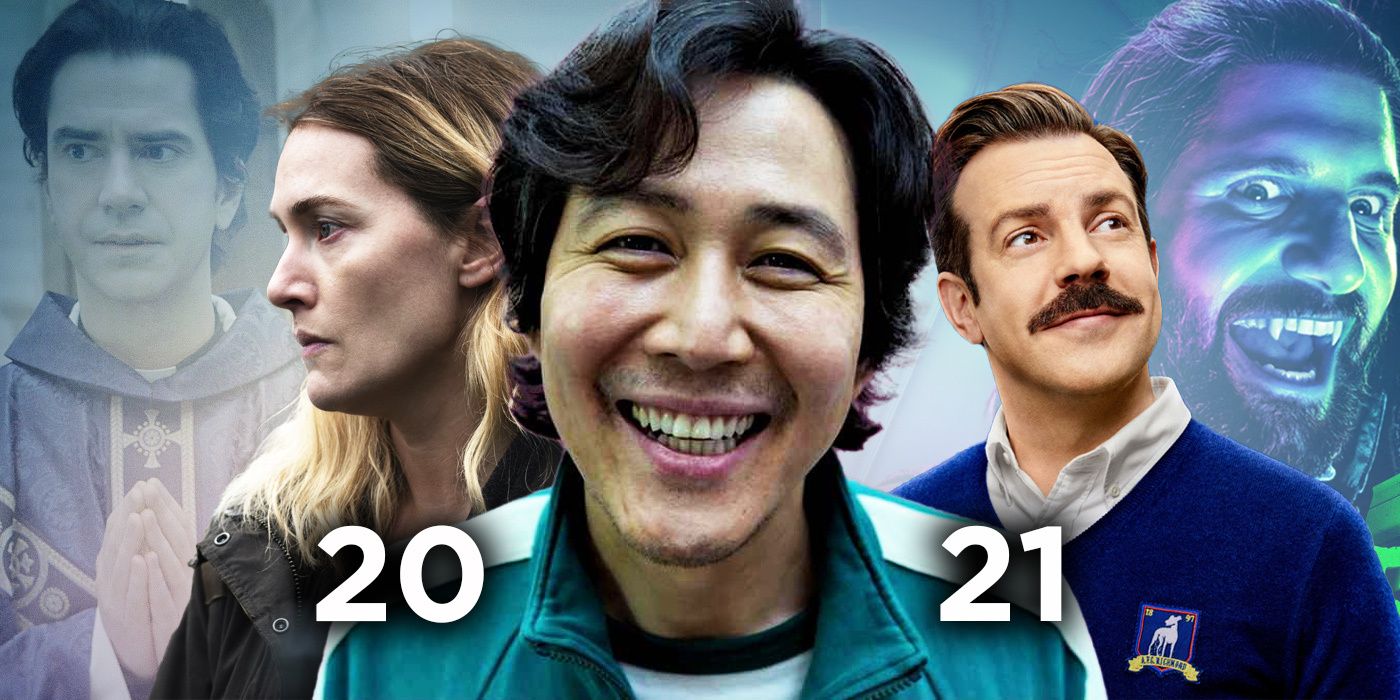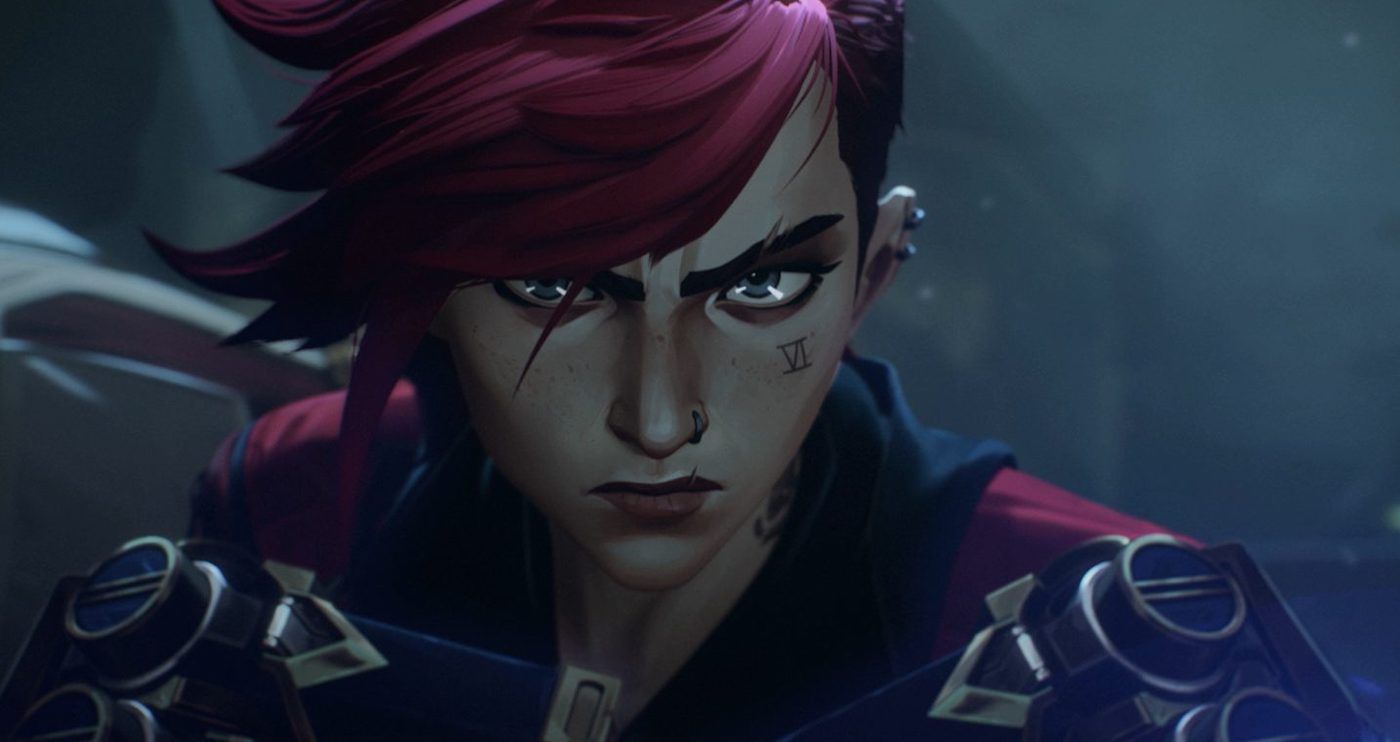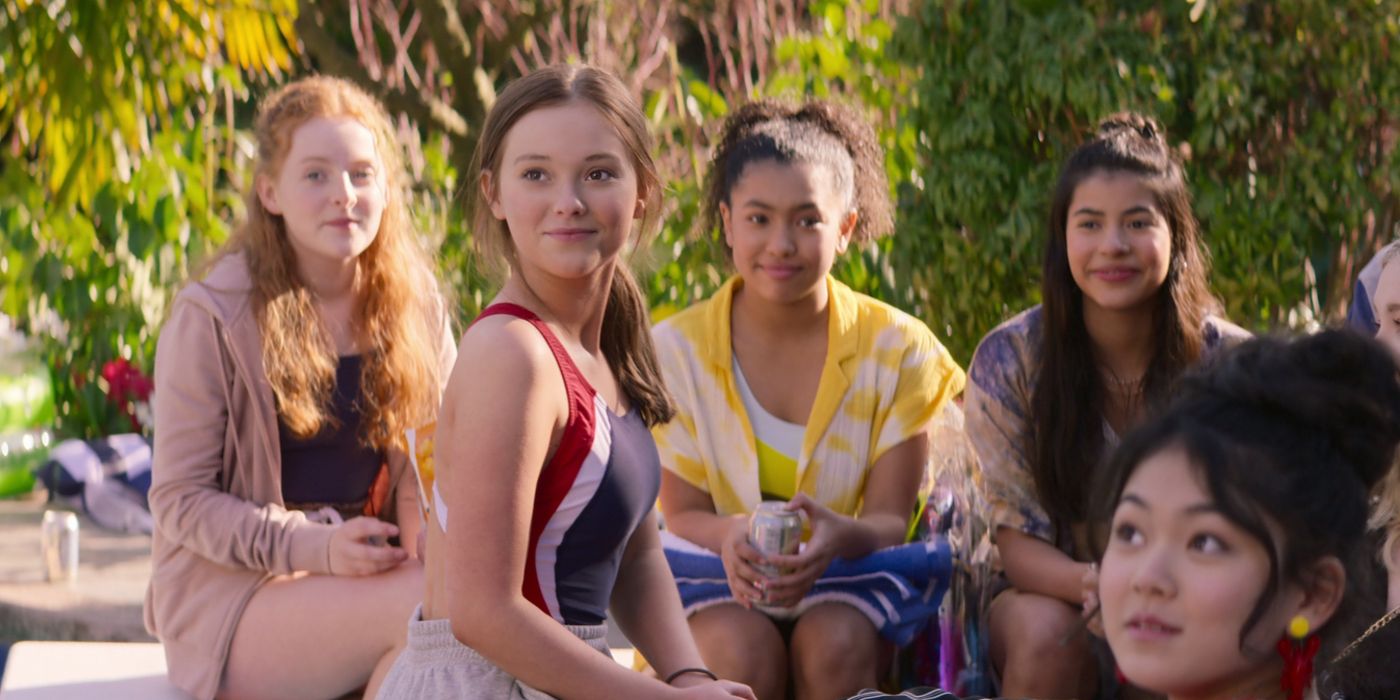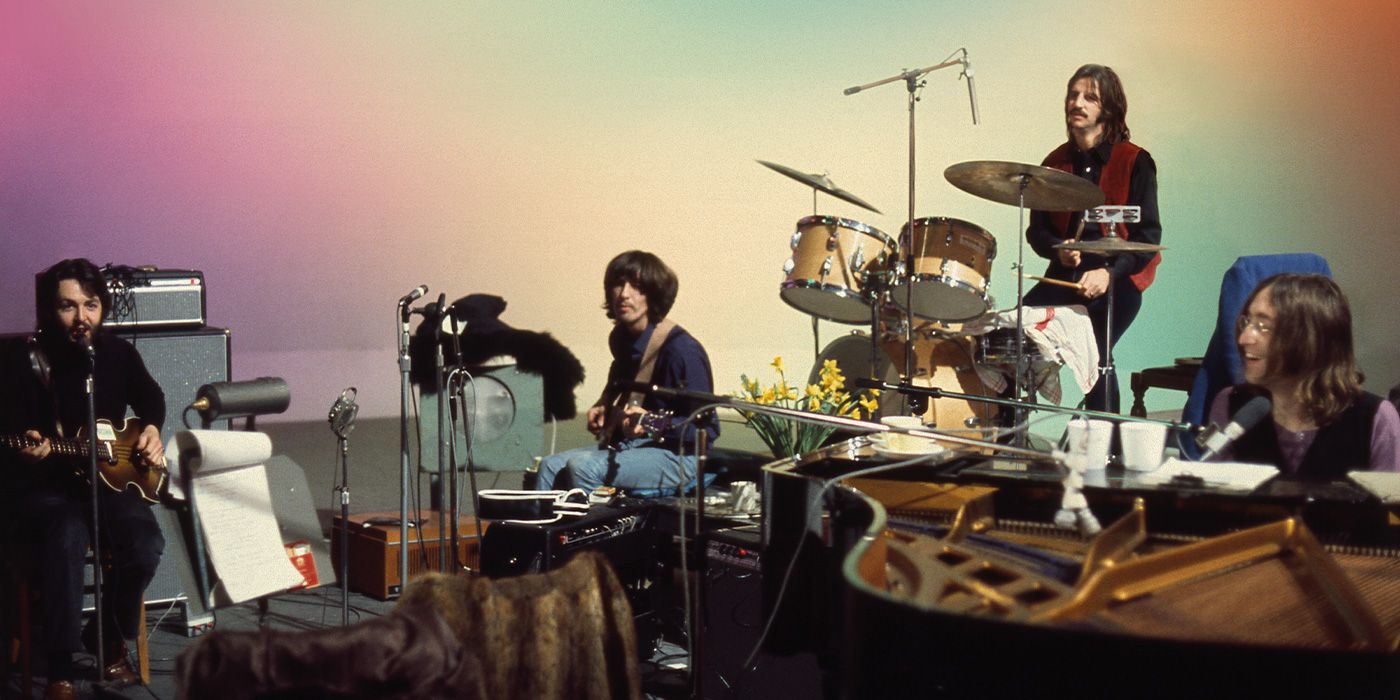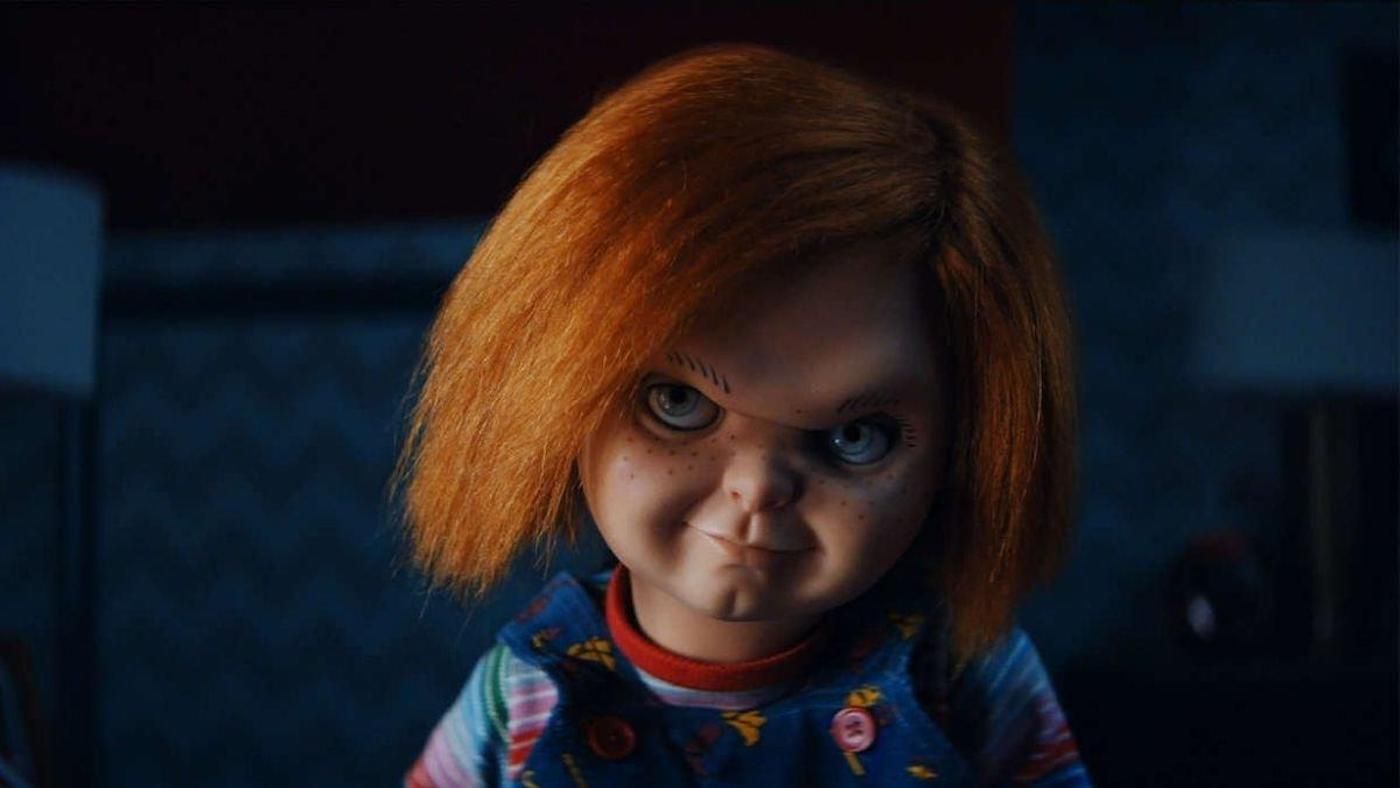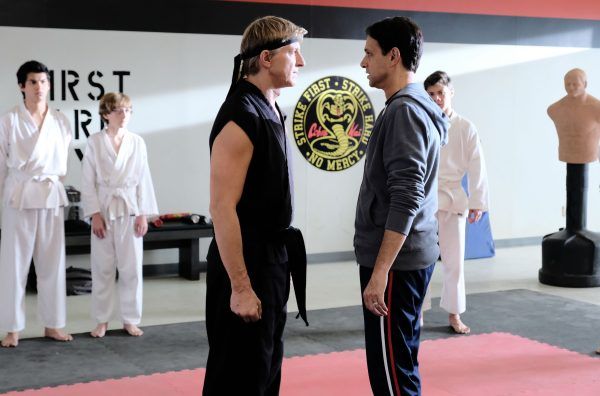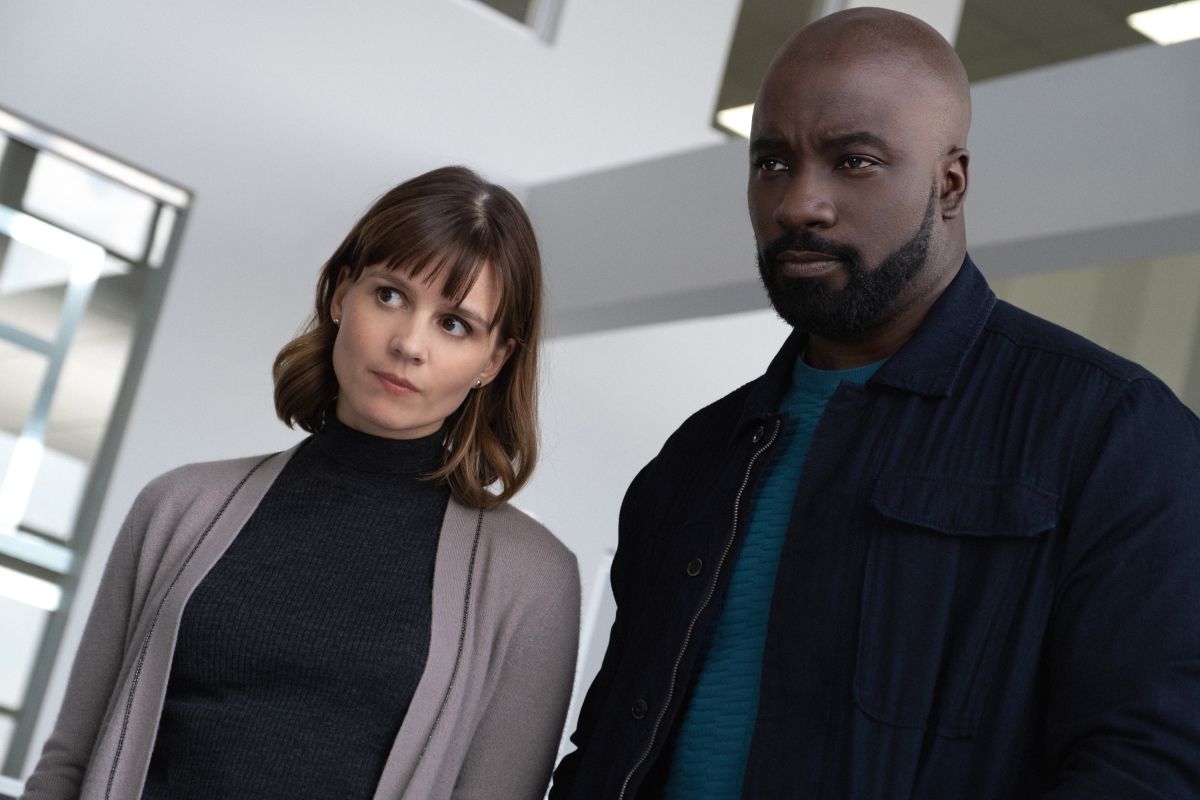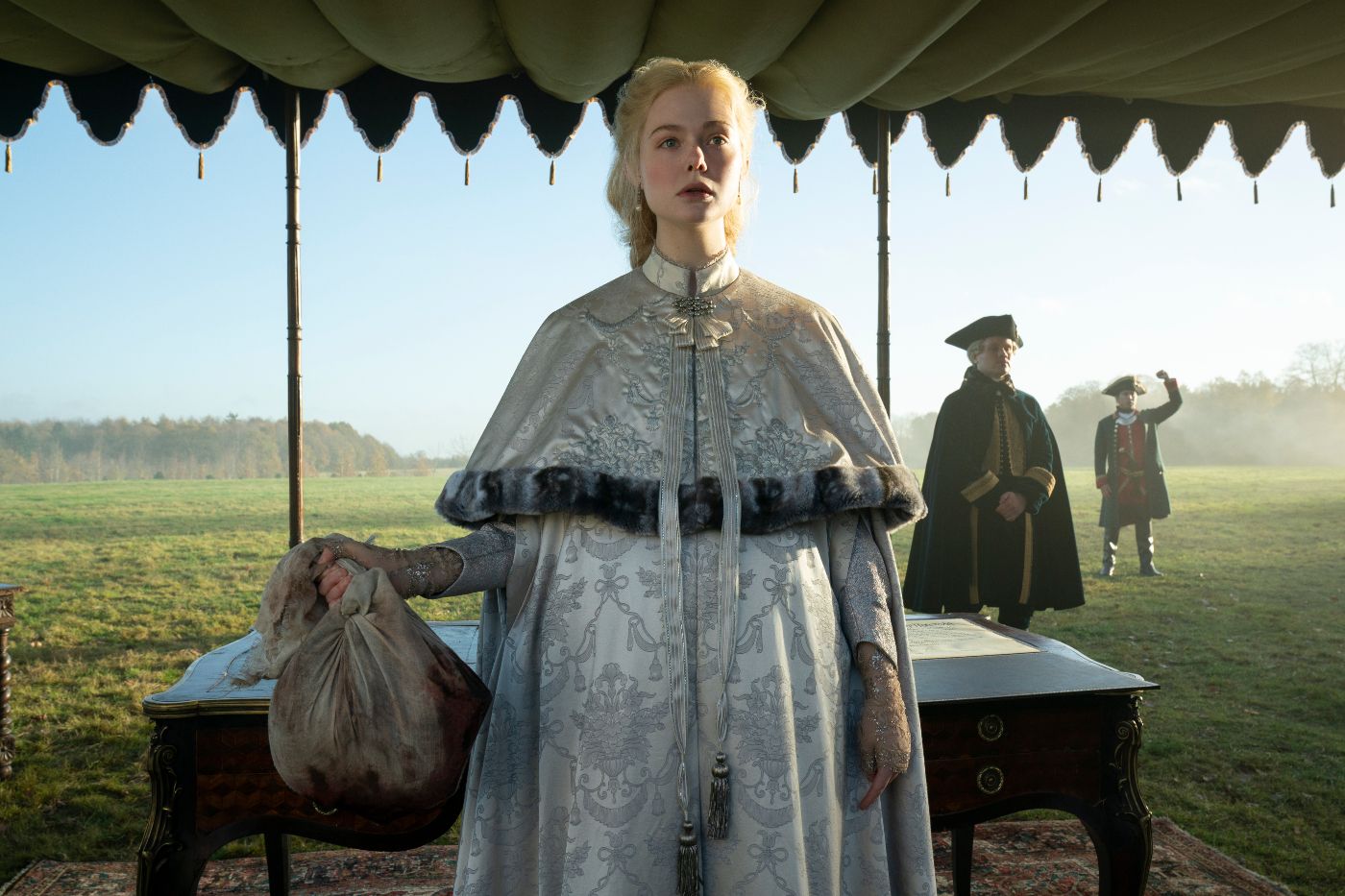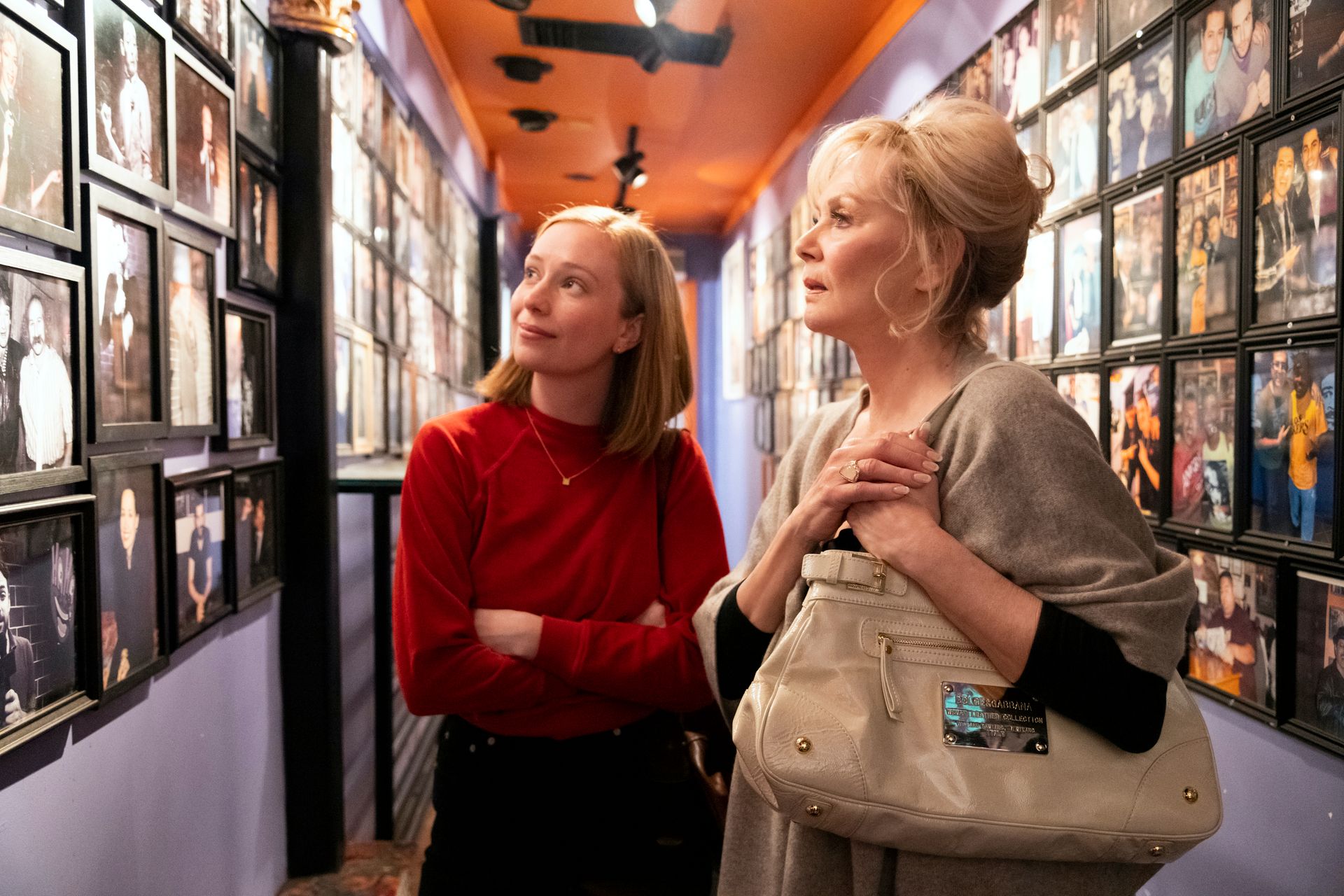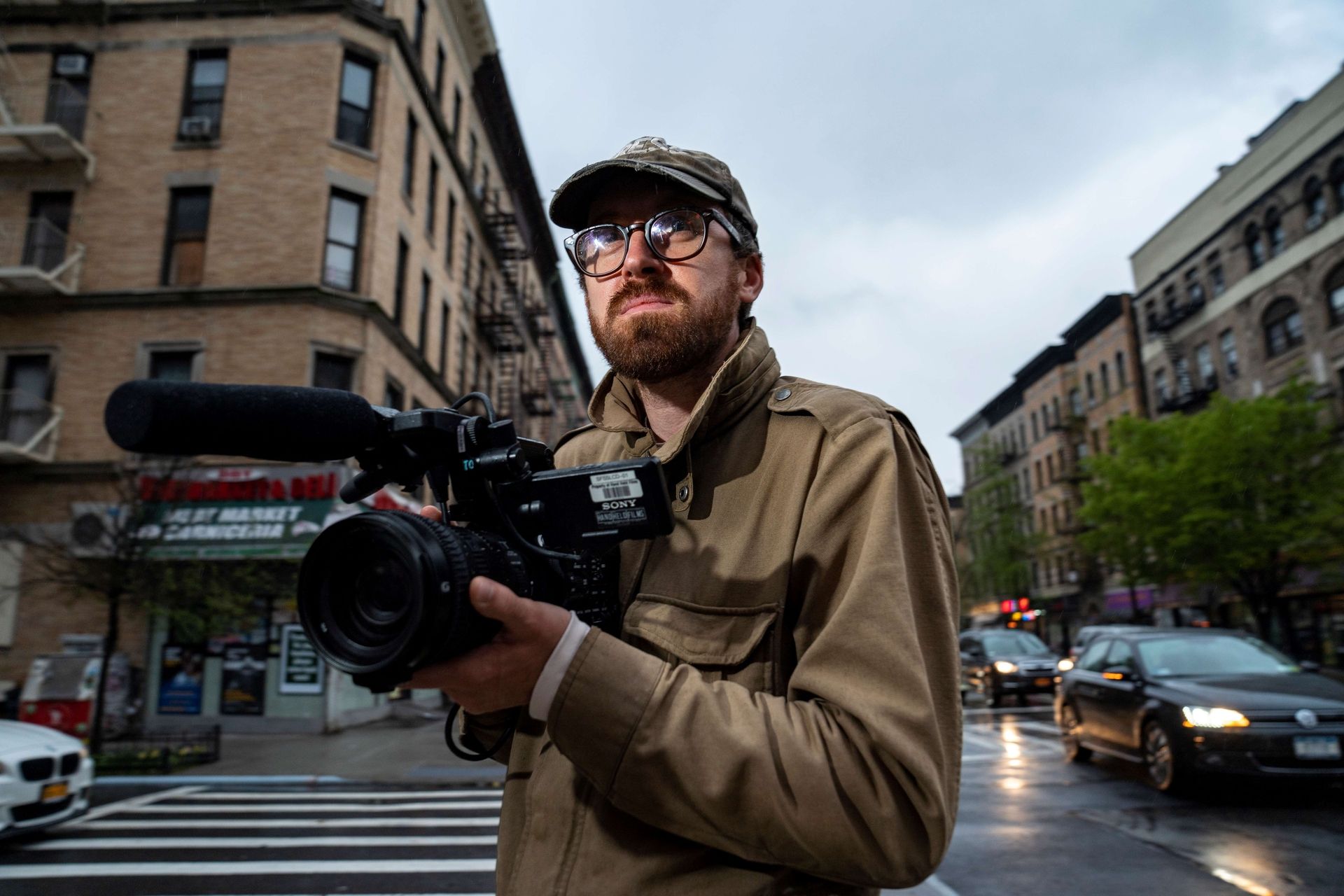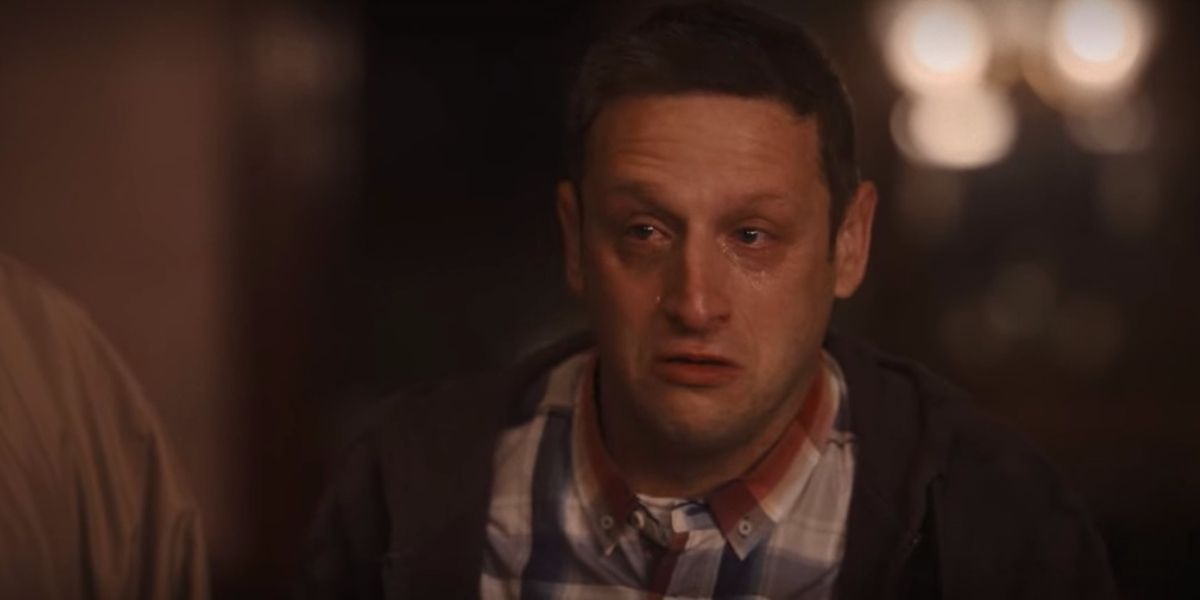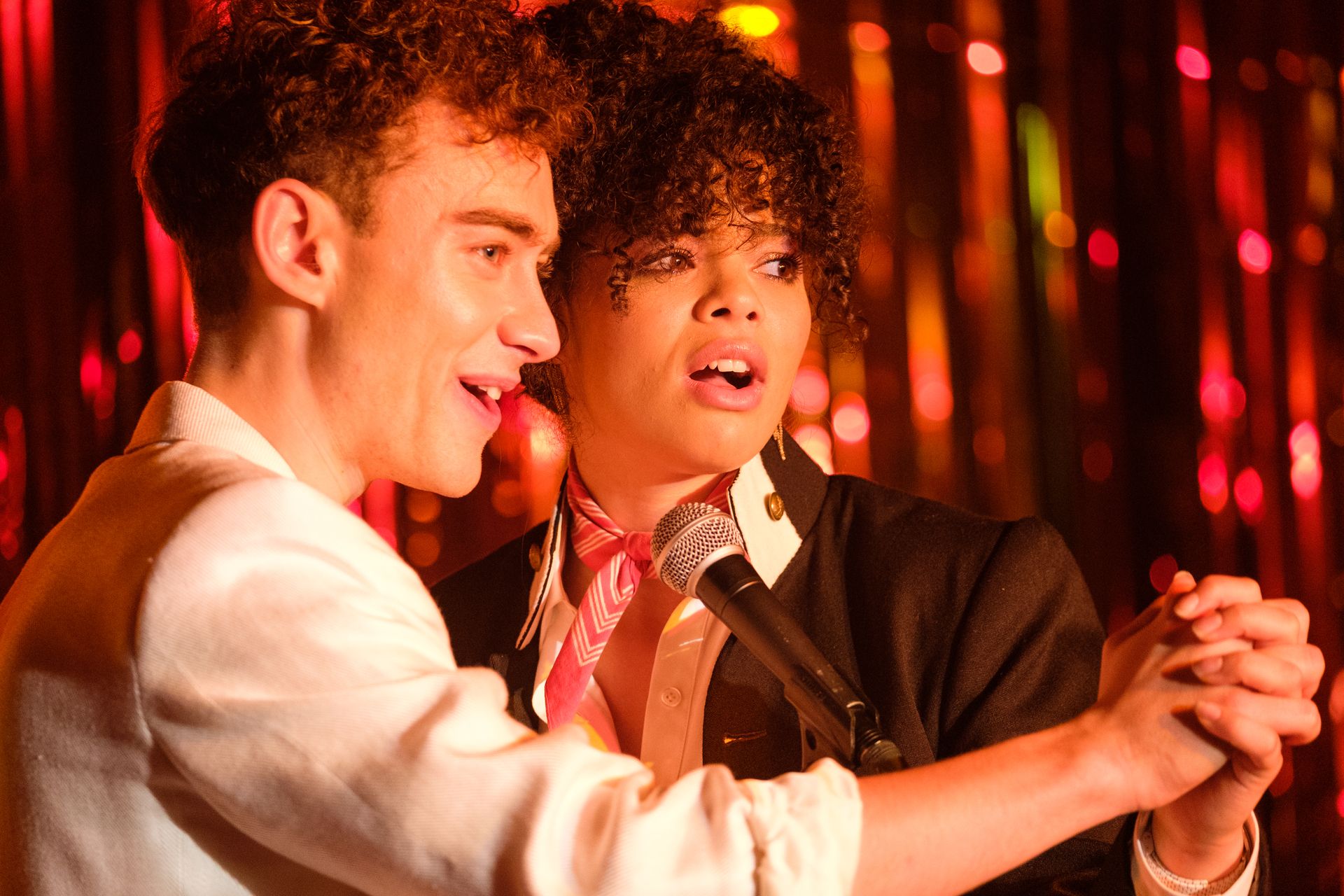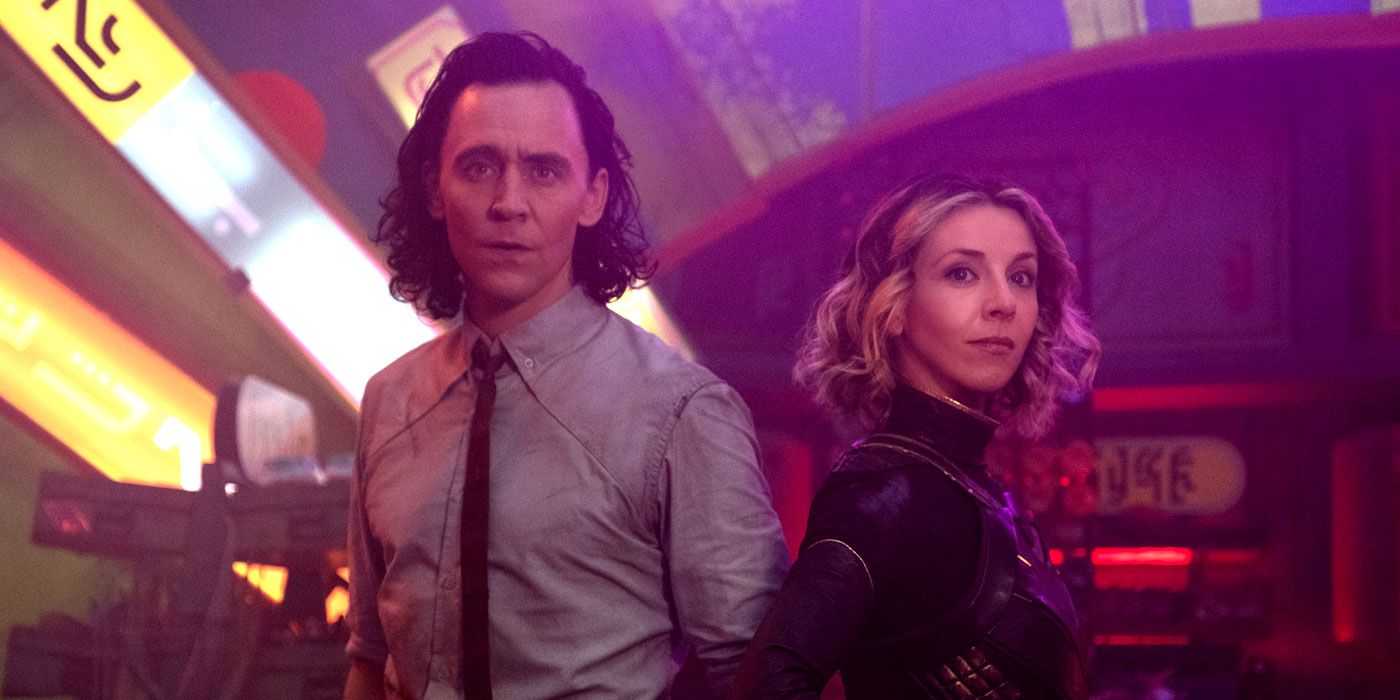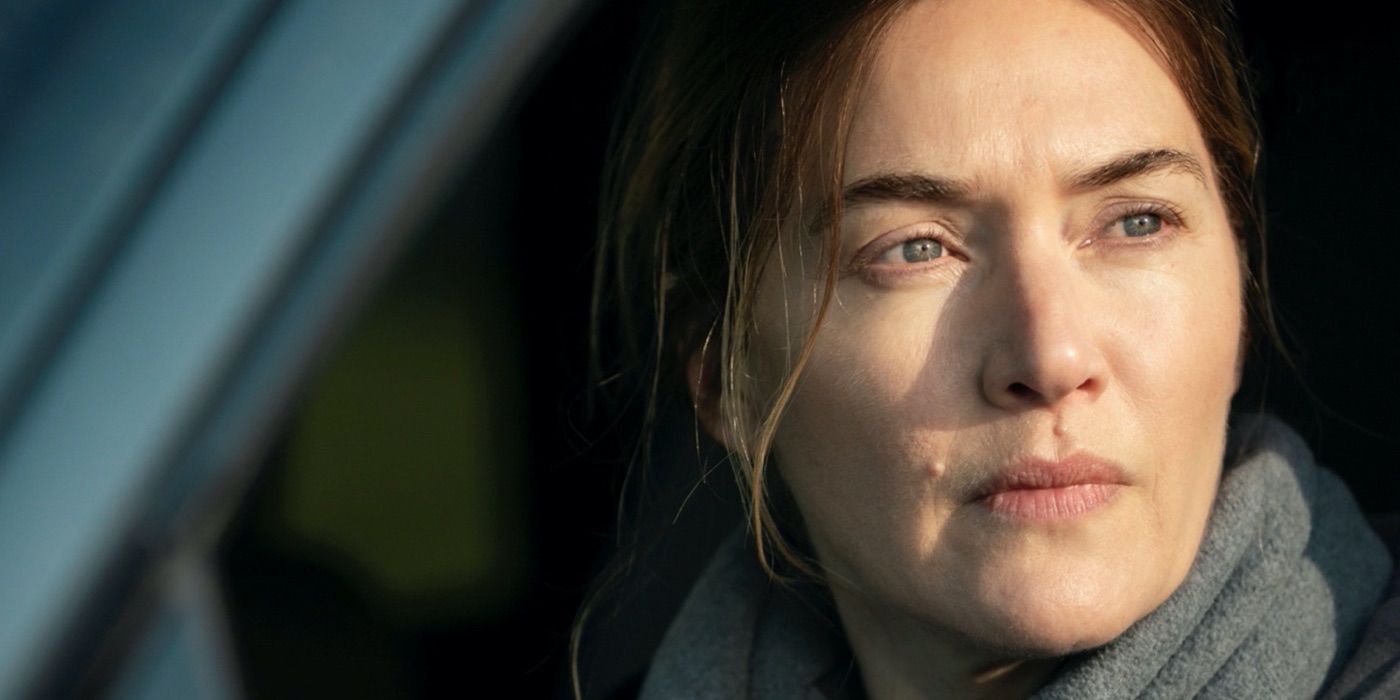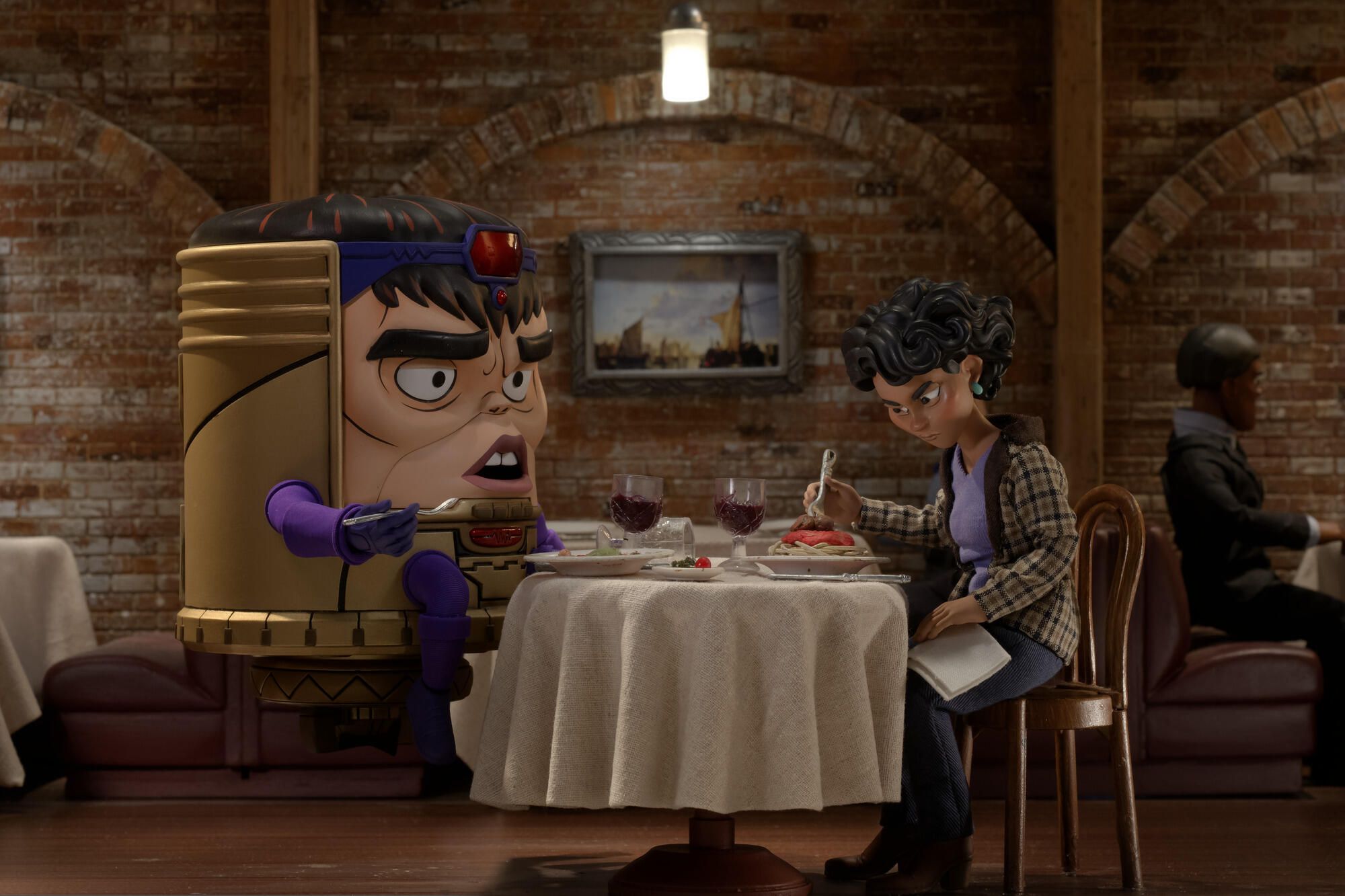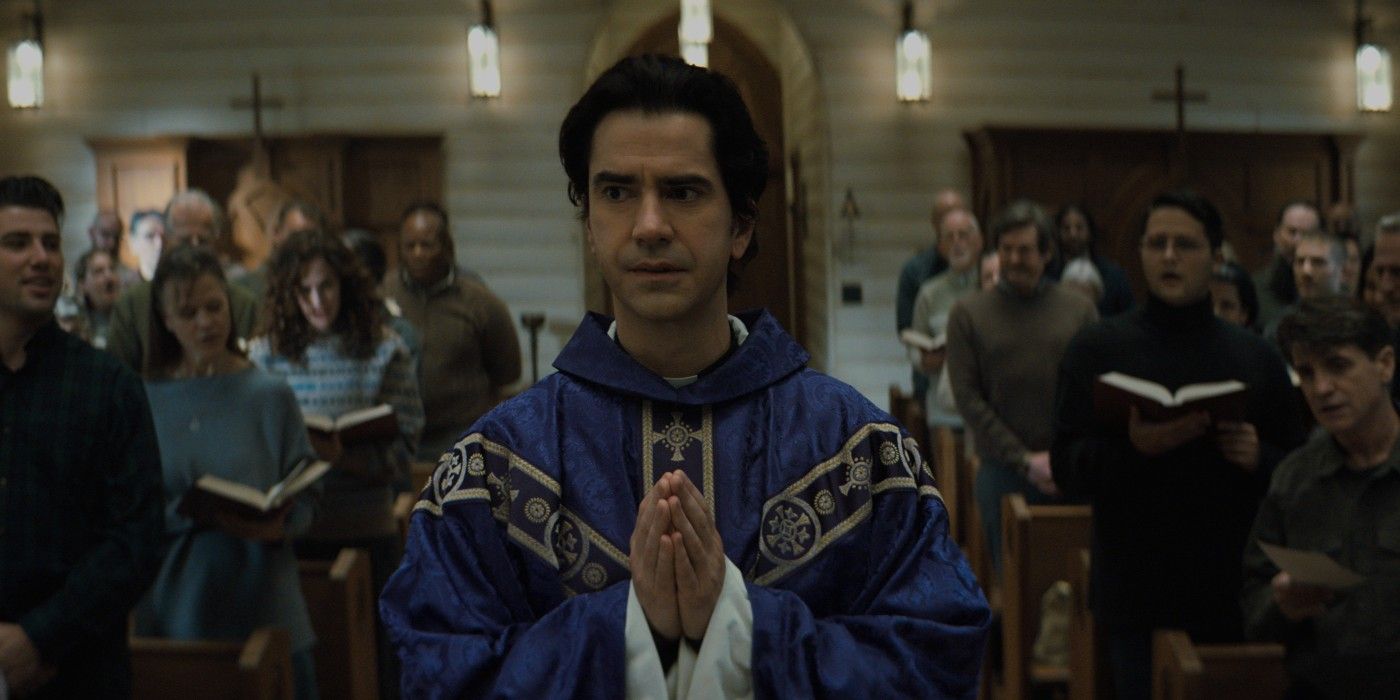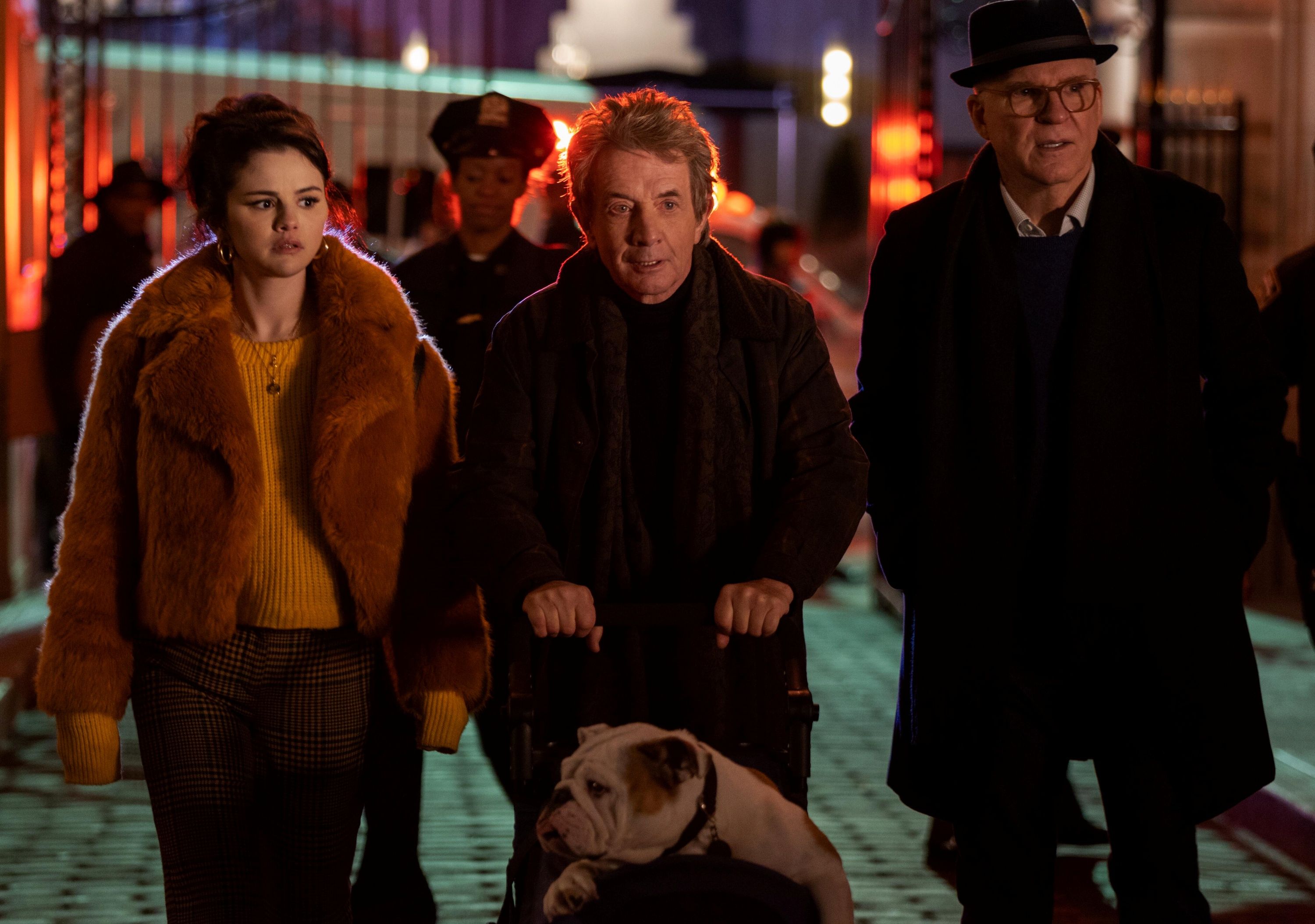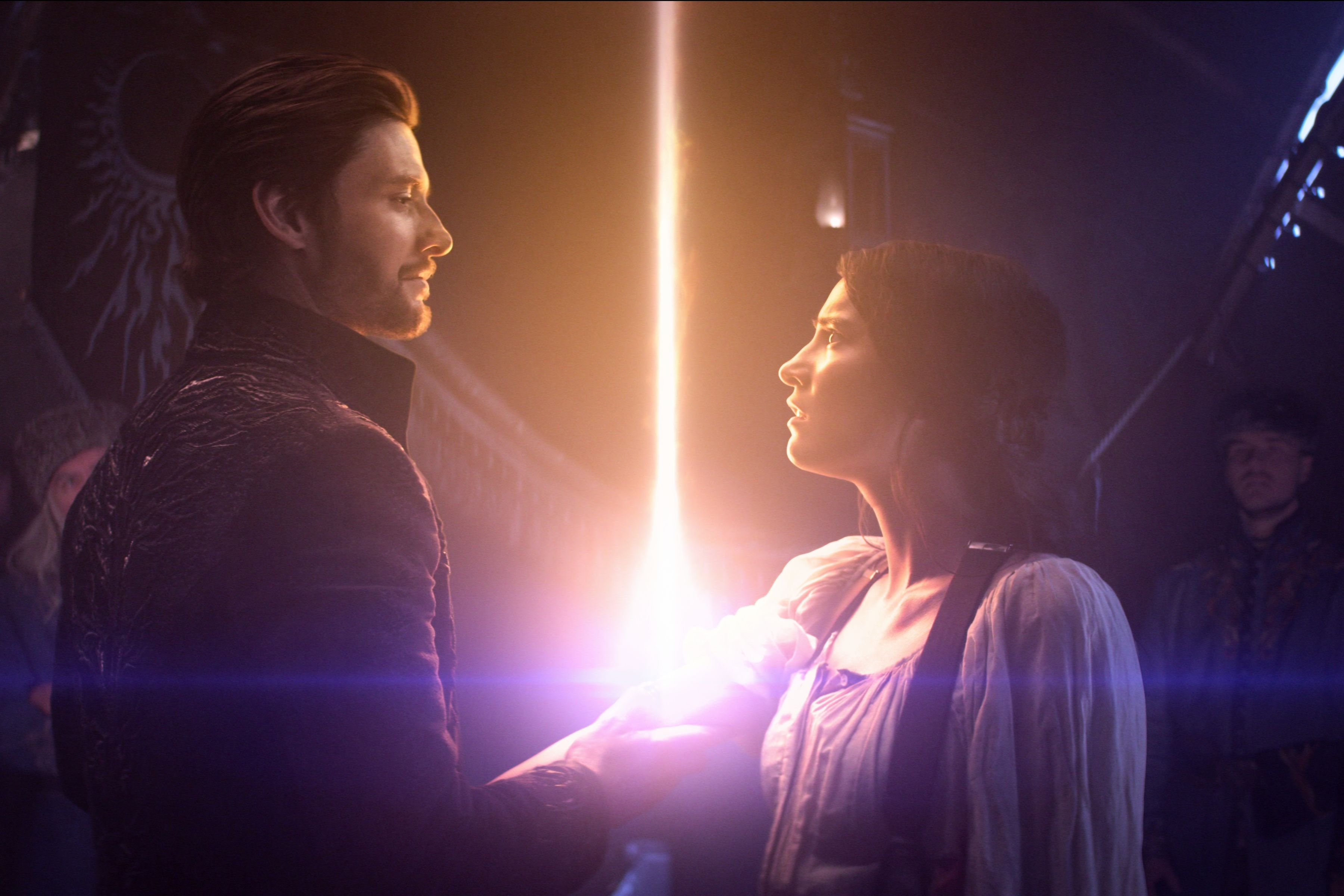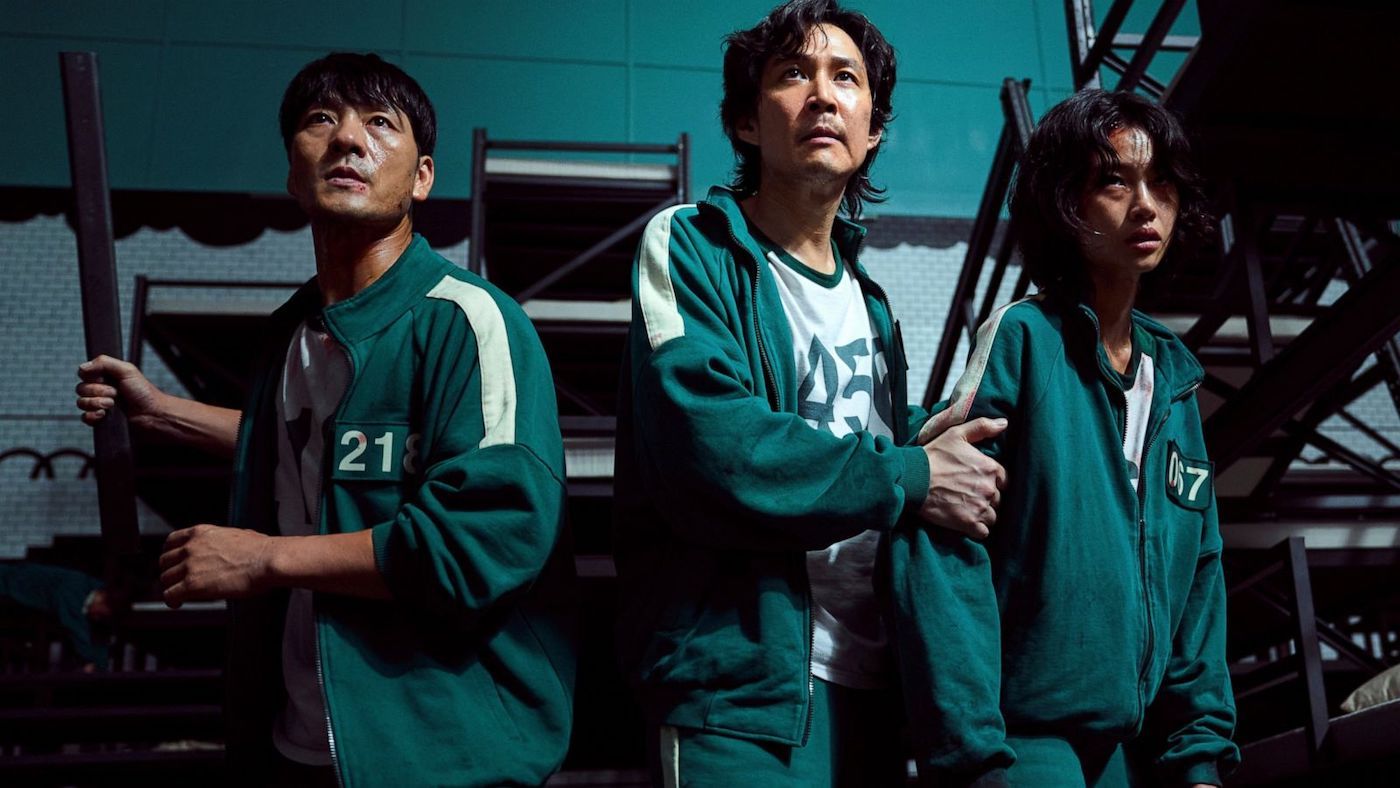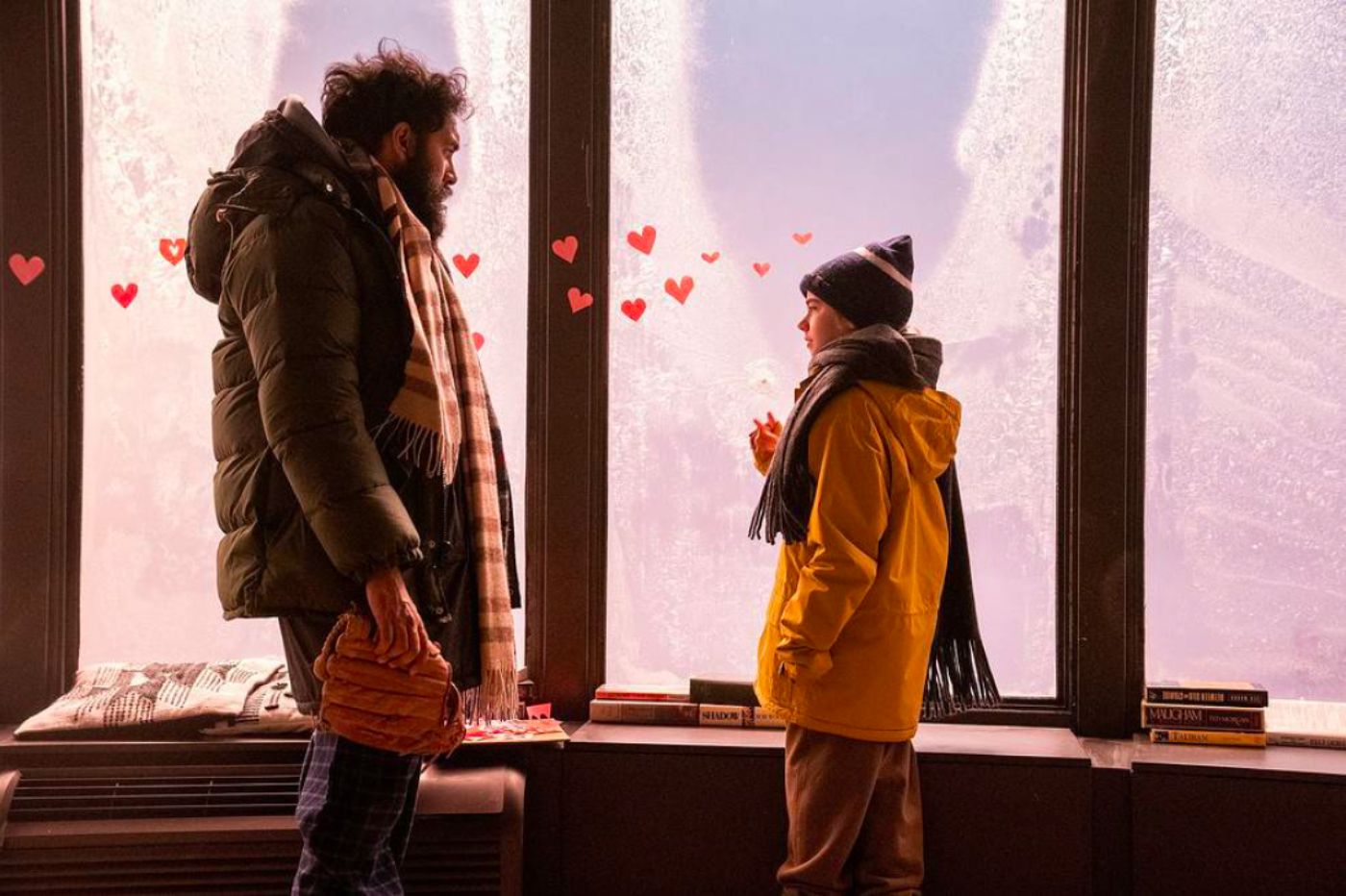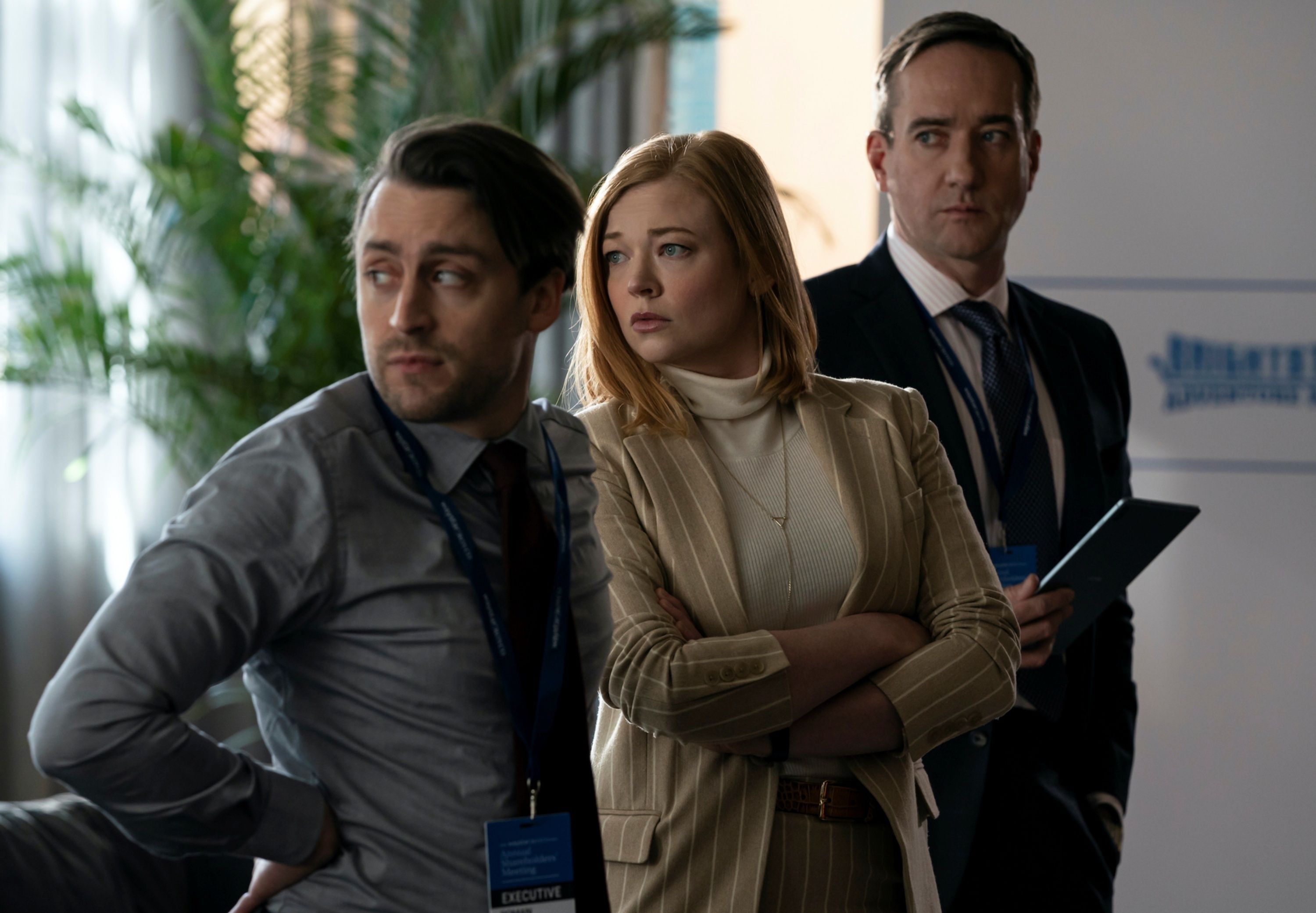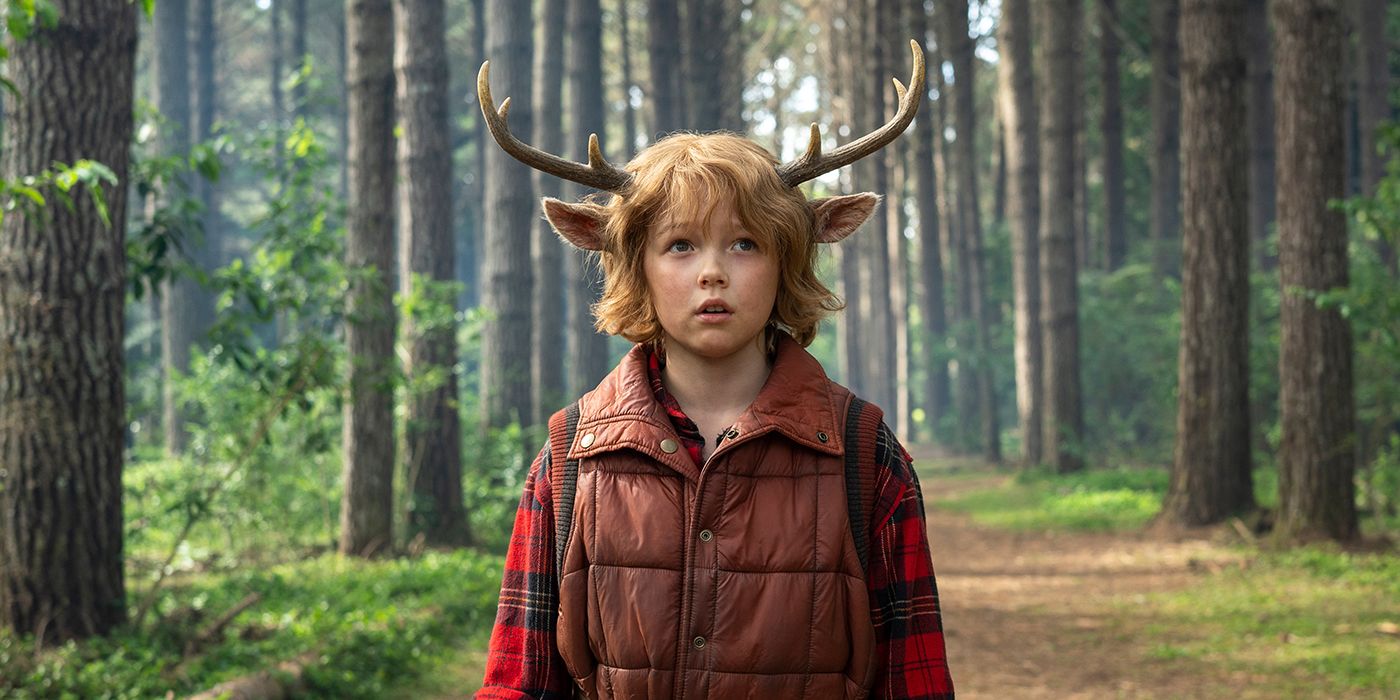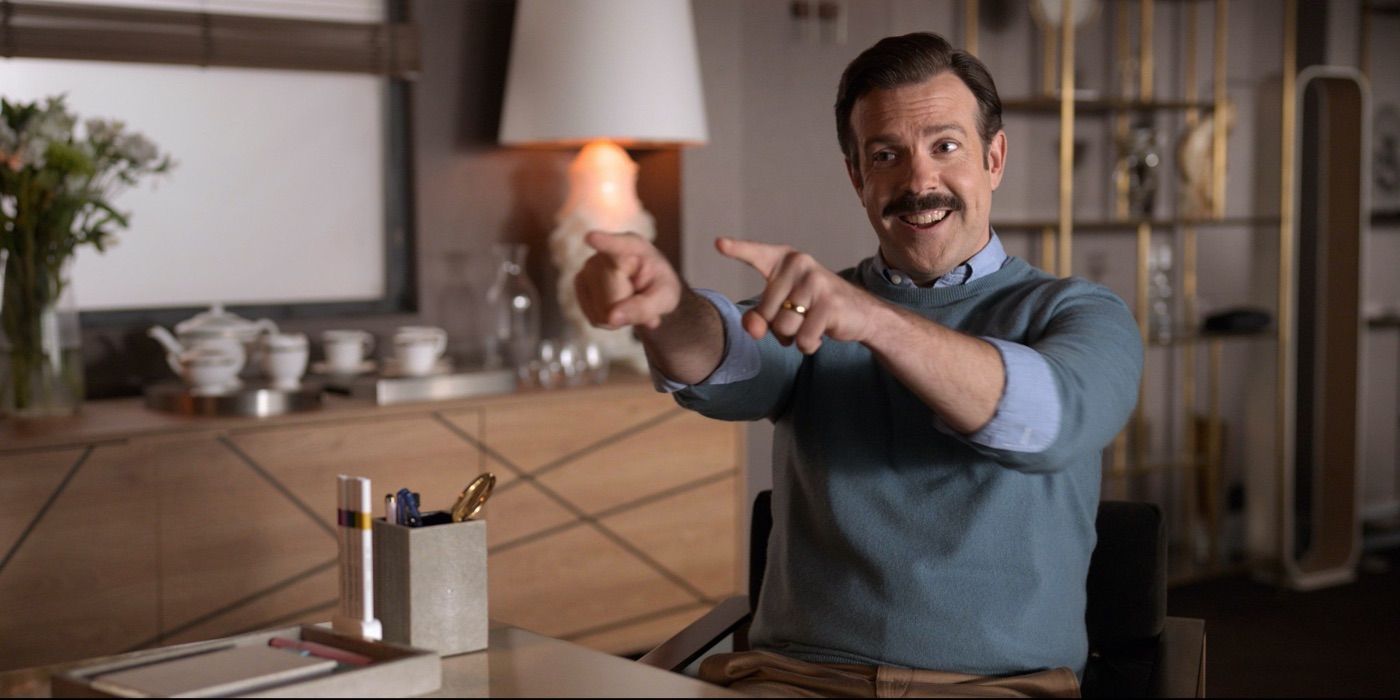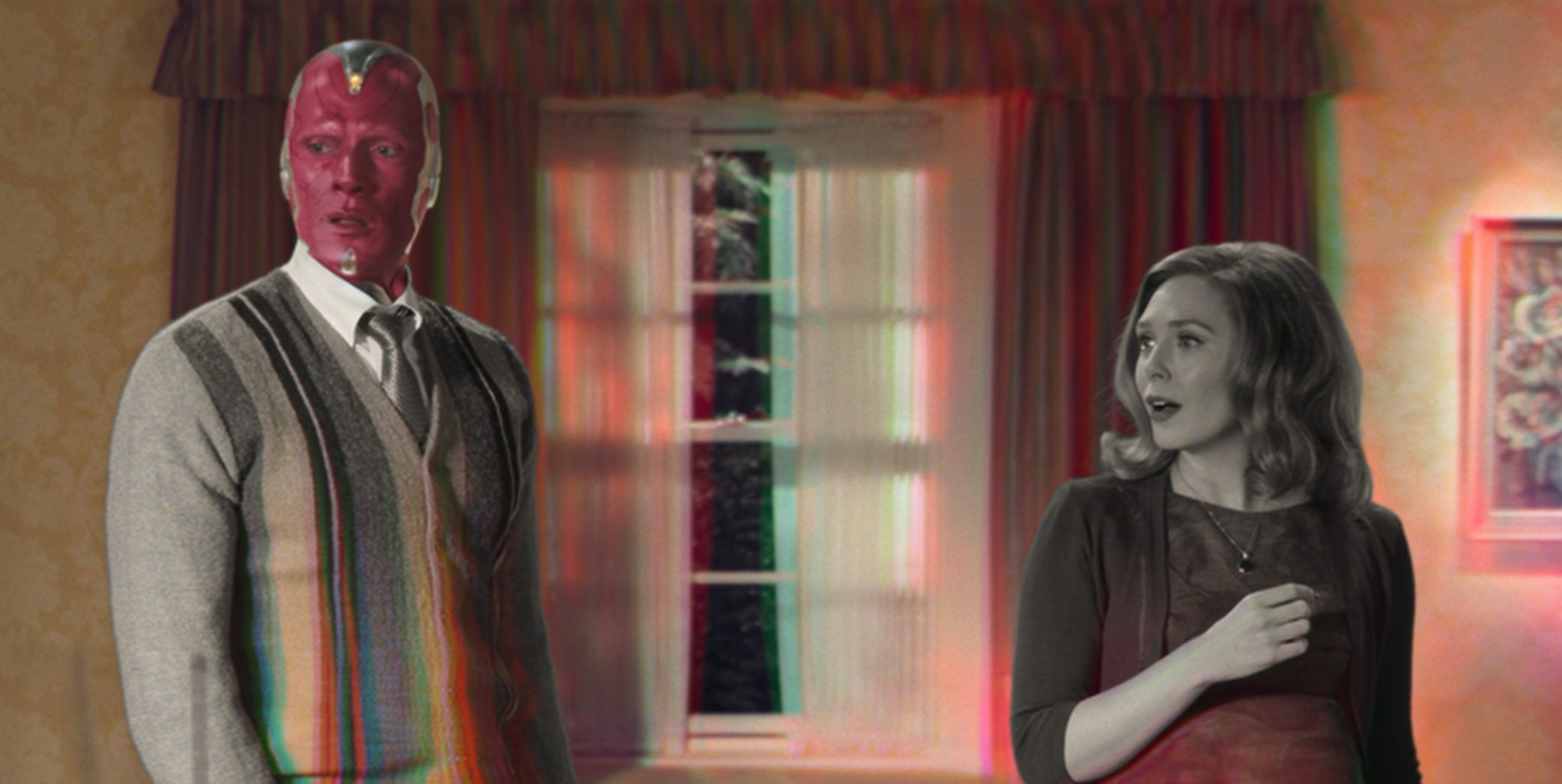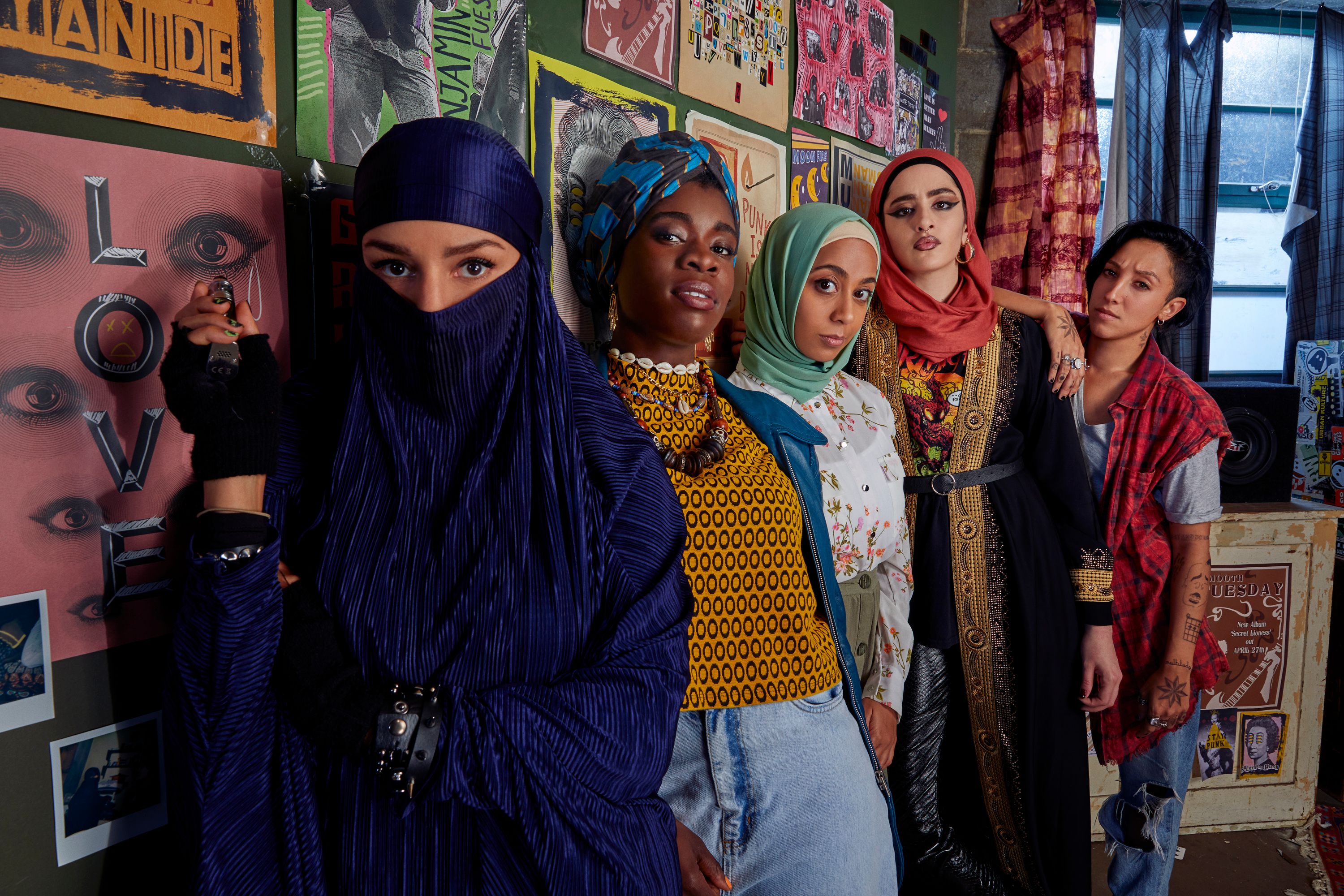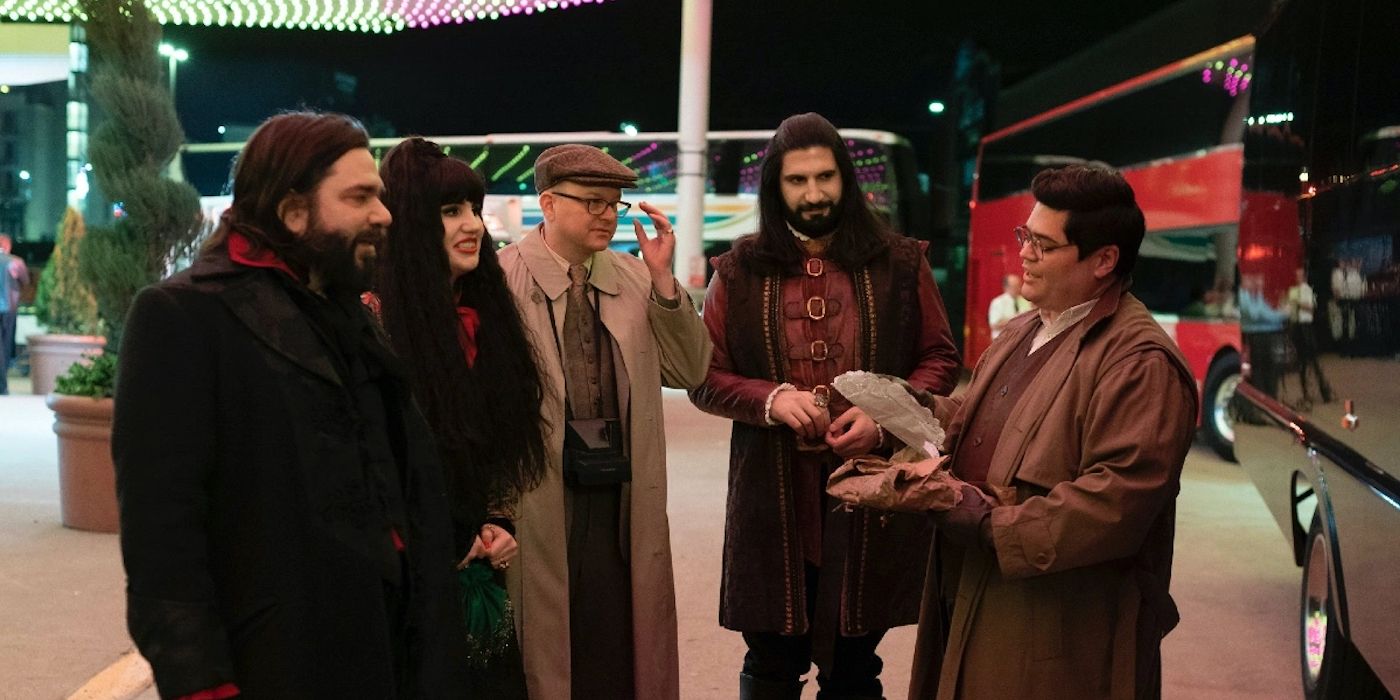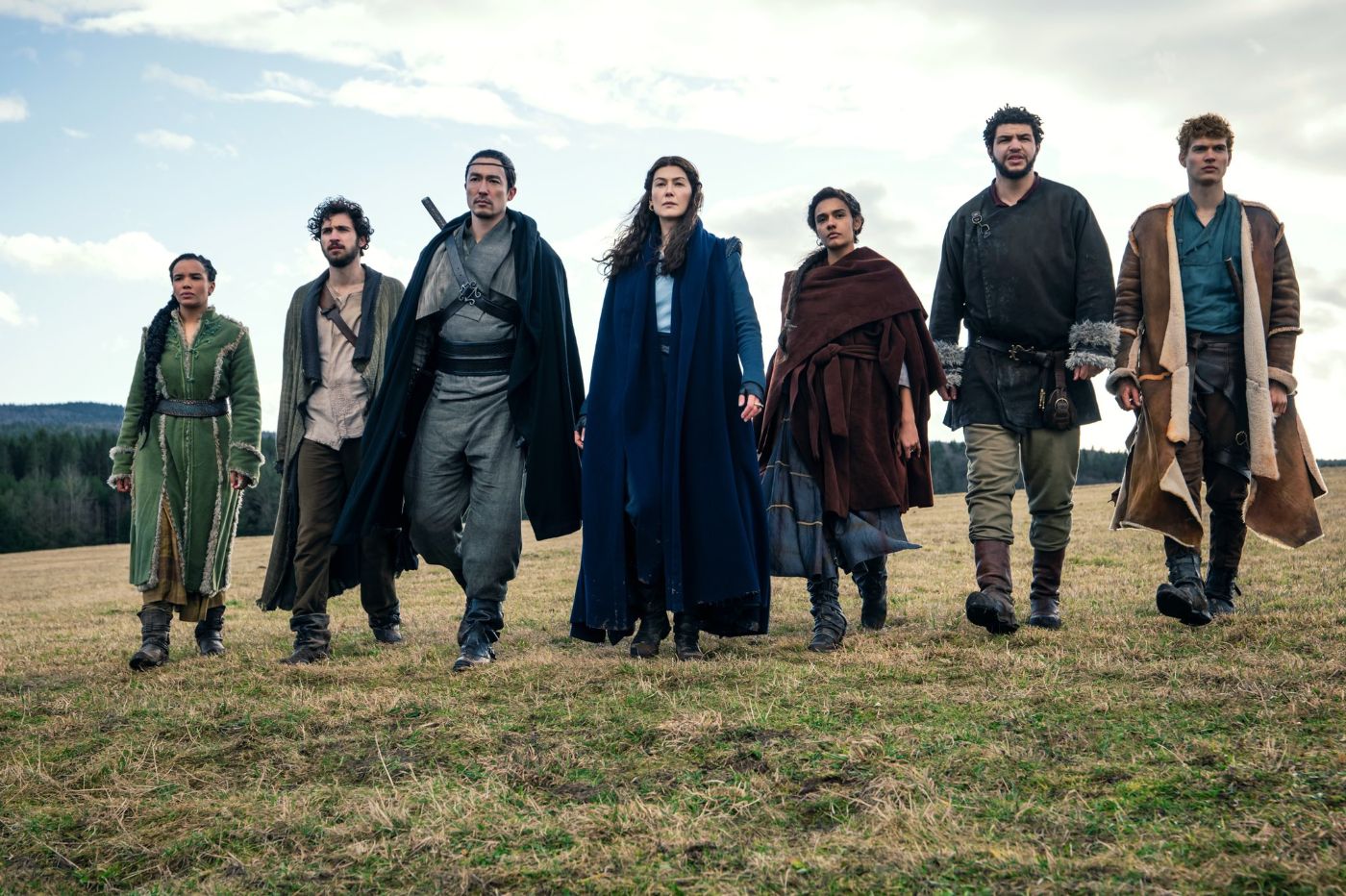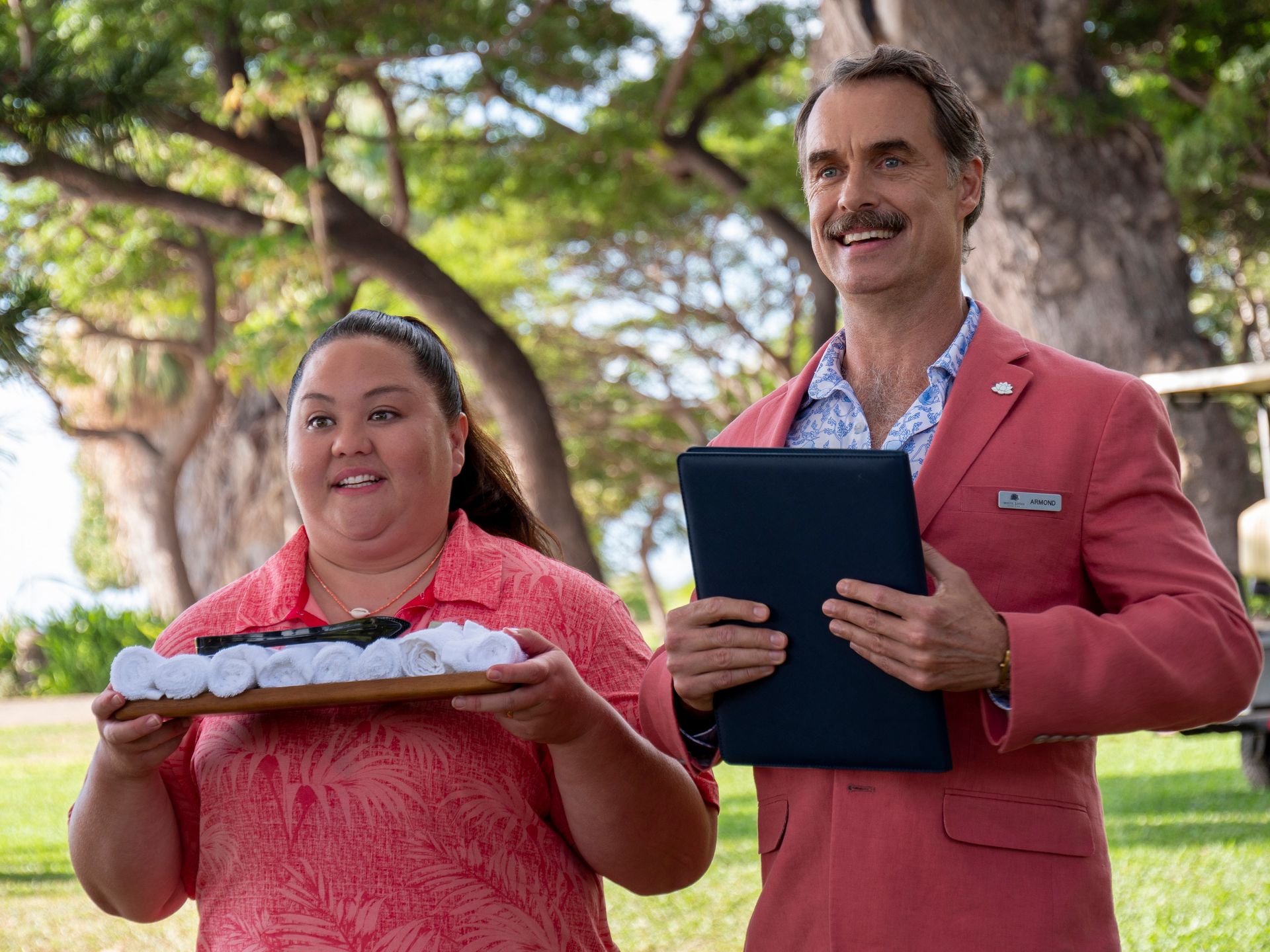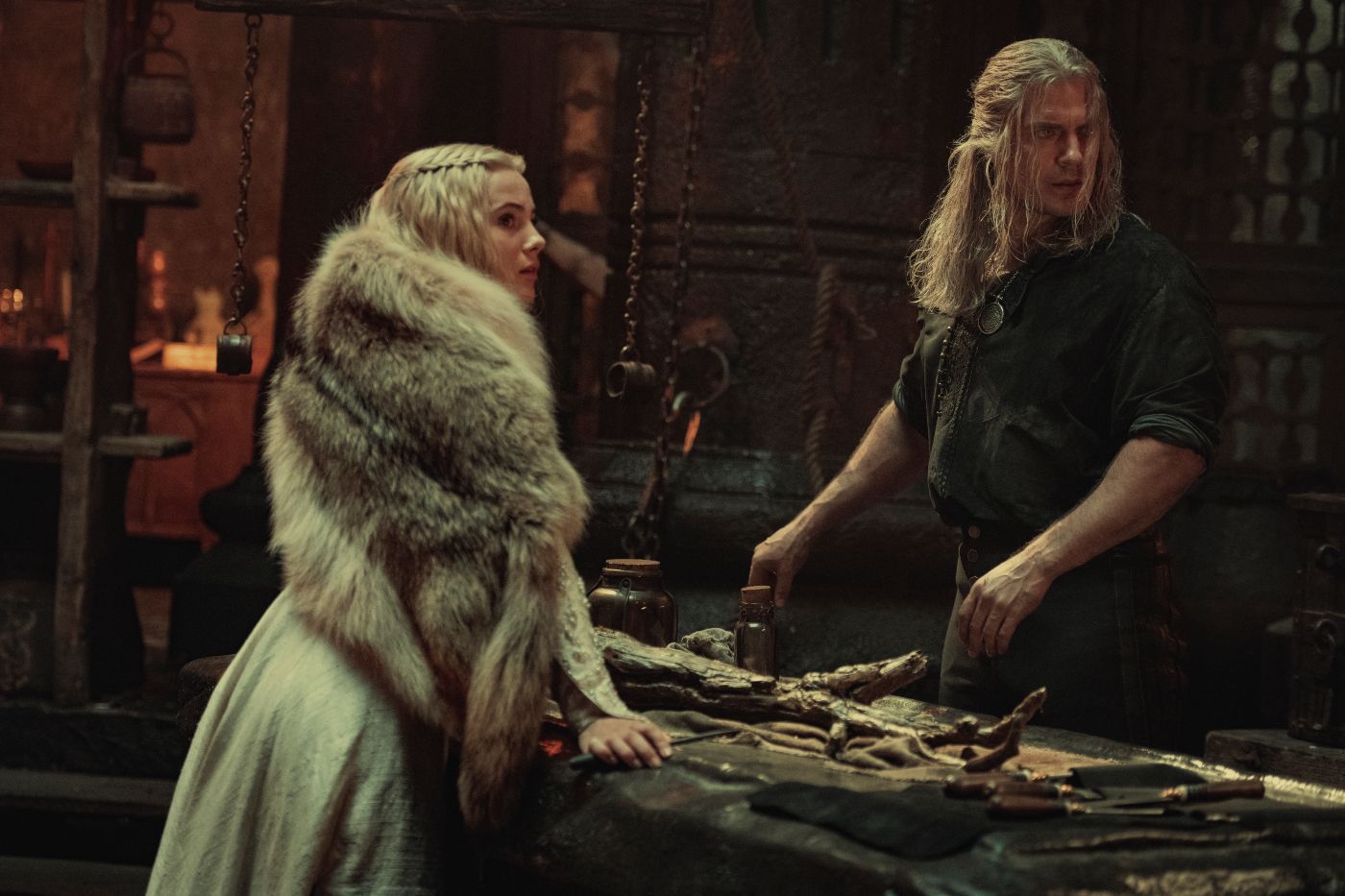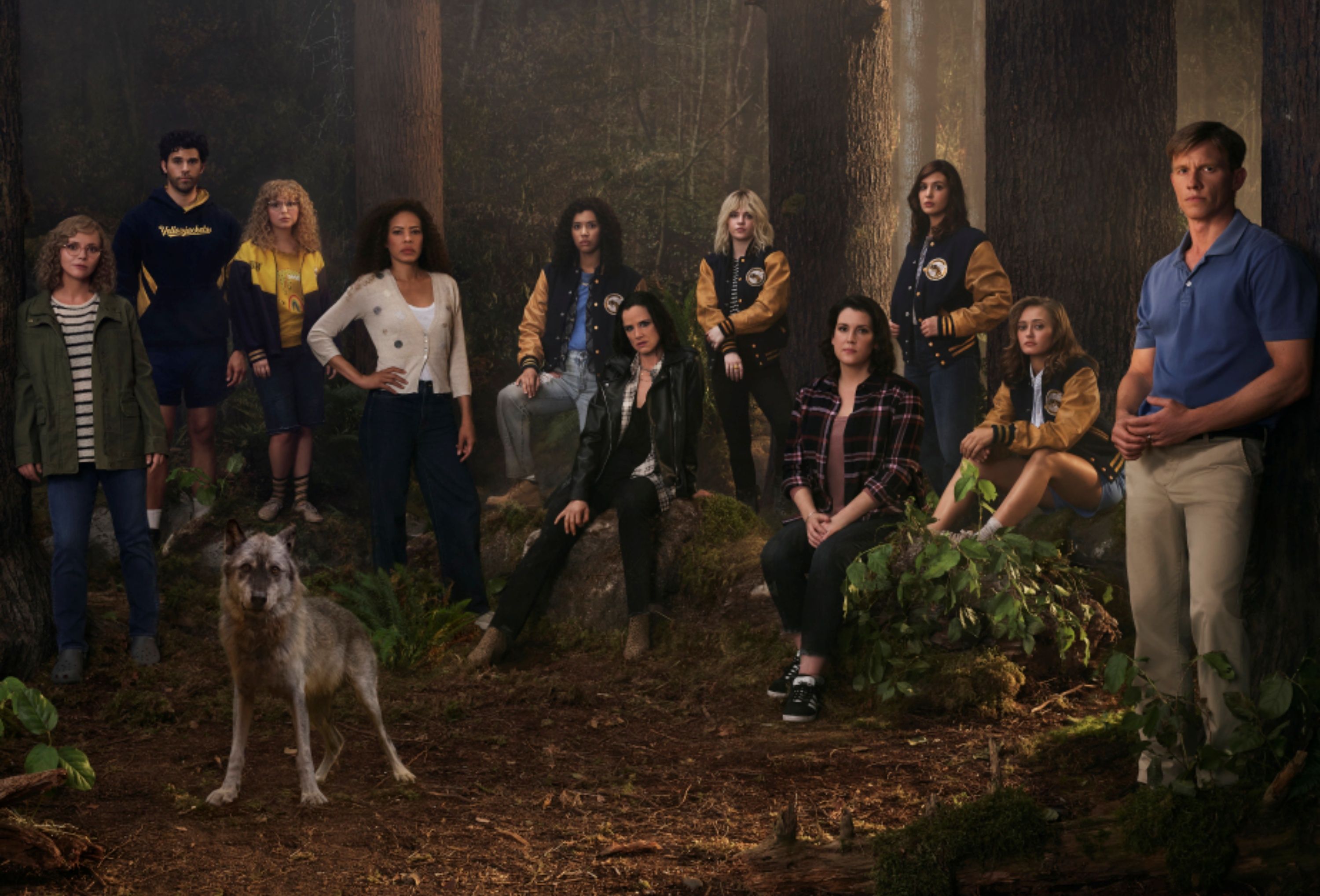It's no exaggeration to point out that the landscape of television has largely changed within the last year — not just the way we talk about it and discuss it, but how we respond to it, especially as a respite from reality. For many, especially those of us who were quarantined in our homes with very few lifelines to reach for, TV shows became one of the most enduring media forms to rely on when all it demanded of us was exactly what we were supposed to be doing already: staying inside.
Thanks to all of the services that give us at-home streaming capabilities, we can tune in for shows whenever and however we want. Whether it's marathoning through an entire season when it drops on launch day or savoring new episodes released each week, it's clear we're far from done with engaging with television — but the biggest difference now is that we're usually doing it on our own terms. There's also the undeniable fact that more television exists now than ever before and often right at our fingertips, and sometimes that means more shows than any one person can conceivably watch within their own lifetime. That's why the Collider staff decided to come together on making our picks for the best TV shows of 2021, rounding up the titles that reminded us of all the things we love about this medium — and why, despite the harsh realities of our world often impacting productions, these small-screen stories are here to stay.
Arcane
We've had good to great video game adaptations, but none have managed to leave as big an impression as Arcane did this year. Based on the lore of League of Legends, this animated show takes us to a fantastical city split in two, with a classic story of haves and have nots, and an invention that ignites the flames of revolution, all grounded in a personal story of two sisters caught in the middle of the conflict. Featuring fantastic vocal performances by Hailee Steinfeld and Ella Purnell, the story of Vi and Jinx is both exciting to see and heartbreaking, as we see them grow from kids way over their heads, to broken grown-ups trying to fix their past mistakes.
More than anything, Arcane boasts the most visually stunning animation since Into the Spider-Verse, with studio Fortiche delivering a unique blend of 2D and 3D animation to make for a visual aesthetic that is simultaneously realistic and cartoonish while employing live-action techniques like handheld camera movements and depth of field to make Arcane look like a big-budget theatrical feature. Arcane has a massive world full of rich detail told visually, a large cast of complex characters you love to hate or root for, making for a thrilling, shocking, exhilarating experience, the best video game adaptation ever, and one of the best TV shows of the year. - Rafael Motamayor
The Baby-Sitters Club
When a TV adaptation of The Baby-Sitters Club was first announced by Netflix, those of us who grew up on the books by Ann M. Martin nervously crossed our fingers and waited to see exactly how it would turn out. Fortunately, none of us should've even been worried, because the show that hails from creator Rachel Shukert (which debuted its second season in October) is a perfect blend of adaptation and update, infusing all of the familiar sensibilities of the original books with a dose of much-needed modern thinking.
Our favorite characters are all back, including tomboy and BSC president Kristy (Sophie Grace), fashion-forward VP and food junkie Claudia (Monona Tamada), cool girl treasurer Stacey McGill (Shay Rudolph), shy secretary Mary Anne (Malia Baker), and California-bred free thinker Dawn (Kyndra Sanchez, who takes over the role for Season 2). The club also rounded out its numbers with two additions in Mallory (Vivian Watson) and Jessi (Anais Lee), and much of the newer babysitters' struggles to fit in and balance home and school life made up a significant part of the second season's emotional arcs. But the cast who brings the parents of the BSC to life are just as phenomenal to watch on-screen — Alicia Silverstone as Kristy's mom Elizabeth caters to all of my personal dreams, and Mark Feuerstein walks the perfect tightrope between awkward and endearing in the role of Kristy's stepdad Watson. And that's not even getting into all of the ways Marc Evan Jackson has made me cry while playing Mary Anne's dad Richard. The Baby-Sitters Club isn't merely an excellent YA adaptation; it deftly tackles race, gender identity, romance, grief and loss, and friendship, making it continually one of the best shows to watch no matter how old you are. - Carly Lane
The Beatles: Get Back
Just know, if you want to get very serious about whether The Beatles: Get Back qualifies as a movie or television show, you are the Michael Lindsay-Hogg of this conversation. Everyone’s here just trying to vibe out and you’re here telling us to go to Libya, that we simply must find some torches and 2,000 Arabs. That doesn’t matter. What matters is Get Back is a miracle. Thanks to Peter Jackson and the same restoration techniques used on They Shall Not Grow Old, we get nearly nine hours of hanging out with Paul McCartney, John Lennon, George Harrison, and Ringo Starr as they sit around, smoke roughly 10,000 cigarettes, and casually make one of the best albums of all time. The magic of this docu-series is that the joys you get over these 9 hours come in every size imaginable. There are moments that are straight-up astounding, like watching McCartney pull the song “Get Back” out of thin air—one second he’s just sort of hammering at his guitar and mumbling nonsense, the next he has a hit—an up-close glimpse at the creative process that’s almost impossible to capture.
But then there’s the charmingly mundane that makes it come alive. I never thought I’d watch The Beatles order lunch this many times. I had no idea The Beatles owned this many coats or consumed that much toast in a single afternoon. I never dreamed I’d sit there for five straight minutes and watch John Lennon sing in a silly little voice and be happy to do so. Sure, the band would be broken up, never to fully re-unite, mere months after the doc stopped rolling cameras, but these are nine up-close-and-personal hours crystalized in time we can revisit whenever we want. - Vinnie Mancuso
Chucky
I reviewed Chucky back in October when the show first came out, and was admittedly disappointed. However, I can also admit when I am wrong, for this show really grew on me and became one of my favorites of the year. As the season progressed, the death toll exploded, Chucky became a much stronger presence, the throwbacks to earlier Child’s Play installments came to fruition, and the show went in unexpected directions. Jake didn’t become a killer? Lexy ended up having a human side? The show didn’t hold back on the gore, the death, or the curses — three things that are shining examples for any entry into the Child’s Play universe. - Alyse Wax
Cobra Kai
If it wasn't clear already that Cobra Kai is the best "lega-sequel" around, Season 4 confirms it. The TV sequel/reboot of The Karate Kid manages to strike the right balance between crafting a new story with new characters you love or love to hate, and also giving longtime fans closure to 40-year-old plot threads. This season, the show even redeems the darkest chapter in the original trilogy, The Karate Kid: Part III, and turns what was otherwise an over-the-top, disjointed mess into a fun, nuanced, emotional, exhilarating season.
After vowing to team-up to defeat Cobra Kai, Daniel LaRusso (Ralph Macchio) and Johnny Lawrence (William Zabka) quickly realize that it's not so easy to set aside decades of rivalry and misunderstanding, and seeing the two become irritated by the other's teaching methods is hilarious to watch. Still, it is Thomas Ian Griffith who utterly steals the show as the returning ponytailed villain Terry Silver, playing up the melodramatics to give us a true mustache-twirling villain and the perfect foil to LaRusso's relentless sense of calm and morals. By the time we get to the All Valley Karate Tournament, Cobra Kai delivers an exhilarating fourth season of thrilling action, emotional character drama, and enough shocking twists to make the wait for Season 5 worth it. - Rafael Motamayor
Dickinson
Although Season 2 of Dickinson kicked off the beginning of 2021 (earning it a spot on our halfway-point Best of TV list), the third and final season showed up to help us wrap up the year in the most splendid and moving fashion. The Apple TV+ series that hails from creator Alena Smith has dealt equally in irreverence and elegance, giving us a backstory for the poet legend Emily Dickinson (played with utter fearlessness by Hailee Steinfeld) that at times seems so insane that it could very well hold notes of truth.
In Season 3, Emily is surrounded by tensions that exist both within and without the walls of the Dickinson household, as the American Civil War looms large over everything — but the conflict between her own family could threaten an even greater division. Dickinson uses every minute of its final 10 episodes to bring us to a conclusion that feels like one only Emily herself could write: quiet, self-reflective, and without losing any of its lyricism, surrealness, or unabashed queerness. Knowing that three seasons was always the plan doesn't make saying goodbye any easier, but the end of Dickinson invites us to look to the horizon, where only hope and possibility exist. - Carly Lane
Evil
We don't get enough horror on TV nowadays, but Evil is doing enough heavy lifting for a dozen shows put together. The show was already rather dark and gruesome for network TV, but the second season of this supernatural horror procedural kicked things up a notch after the show moved from CBS to Paramount+, allowing it to be as violent, sexy, and scary as it damned well pleased, and we are all thankful for it.
After the previous season ended with Kristen (Katja Herbers) murdering someone, Season 2 has her confronting her guilt, her crumbling marriage, her feelings towards the soon-to-be ordained David (Mike Colter), and the fact that her mother Sheryl (Christine Lahti) is heavily involved in some dark, seemingly supernatural cult stuff with the voice and face of pure evil, Michael Emerson (well, his character Leland, but still). This season dealt with some pretty out-there subjects like U.F.O.s, Japanese creepypasta, possessed dolls, and cannibalism, while still finding the time to offer some nuanced and poignant commentary on real-world issues like police brutality, religious tax-exempt status, racism and sexism within the church, and even some Muslim religious horror that culminated in a thrilling dual Catholic and Muslim exorcism. What other show could do that while still following police procedural tropes? - Rafael Motamayor
The Great
The Great has it all: humor, drama, sex, murder, fantastic costumes. And you can (kinda) pretend that it is educational. Season 2 shows the aftermath of Catherine’s coup against her husband, Peter, the Emperor of Russia, and her attempts to run the country. Her attempts are met with mixed results, and Catherine realizes that running a country is not as easy as it seems. Though Elle Fanning and Nicholas Hoult are brilliant in their roles as Catherine and Peter, the season is stolen by Gillian Anderson, who plays Joanna, Catherine’s scheming, manipulative mother. Though she only appears in two episodes, her role shall live on in infamy. - Alyse Wax
Hacks
Hacks takes the rift between boomers and millennials to a whole new level. Jean Smart plays Deborah Vance, a long-running Vegas comedian with acerbic aplomb; Hannah Einbinder stars as Ava, the young, talented comedy writer who comes to work with Deborah after her career hits the skids, with entitled wokeness that is just this side of obnoxious. Together, the two are a wonderful pair who play to both generations’ strengths and weaknesses. It’s a truly special dynamic the two actresses share, making it no wonder that the show picked up a ton of Emmys this year. - Alyse Wax
How To with John Wilson
After the excellent and personal finale of Season 1, "How to Cook the Perfect Risotto,” the second season of How To with John Wilson doubled down on letting us into Wilson’s life with shocking a cappella revelations, a feature film that Wilson made in high school, and even more of Wilson’s adorable landlord. But Season 2 also continues Wilson’s brilliant ability to show New York City in a way we’ve never seen before, complete with Wilson’s hilarious narration and talent for turning even the most mundane topics into something profound. An episode about parking spots can turn into a discussion on morality, or Wilson’s attempt to get rid of a bunch of old batteries can become a conversation about reckoning with one’s past. How To with John Wilson remains one of the most unique, profound, and hysterical shows on television. - Ross Bonaime
I Think You Should Leave with Tim Robinson
Over two years was simply far too long to wait for the second season of the best sketch comedy series on television, but the second season of I Think You Should Leave with Tim Robinson more than made up for the absence. The first episode alone gave audiences two of the most hysterical moments of the year, with “Coffin Flop” showing body after body busting out of shit wood and hitting pavement and Karl Havoc’s desire to not be around anymore. But the beauty of I Think You Should Leave sticks in one’s mind for months after watching a season. Try to eat a steak without wanting to slop it up, look at a wild shirt design without thinking of Dan Flashes, and with the holidays approaching, it will be hard to see Santa without being reminded of “Crashmore.” I don’t know what to tell you, bud, other than that I Think You Should Leave showed that Robinson is the comedic genius and sketch comedy hero we need. - Ross Bonaime
It's a Sin
At the start of this year, the UK’s Channel 4 released It’s A Sin, and although not even a full year has passed, it’s safe to say that this show is one of the great triumphs of British television. The AIDS crisis has been a topic that literature, theatre, cinema, and television have all portrayed in different genres from musical to drama. It’s A Sin takes the perspective of youth and hope as it follows a group of college kids who flee their repressive homes to live the life they have always dreamed of: parties, drinking, sex, and subsequently, living openly as homosexual. The series follows the beginning of the AIDS crisis and aims to show why it took people (including the LGBTQ+ community ) so long to recognize how serious a problem it was. When it started to show that a lot of gay men were catching this “flu," healthcare and research were stalled, and those suffering and dying were silenced, not given proper funerals, or their friends and loved ones were banned from seeing them.
With a cast lead by Years and Years frontman Olly Alexander, the group of friends forms the closeness built on trust and acceptance that brings the magic touch of this show, but it’s also what makes it so tragic. Young people, on the brink of truly finding their place in the world, finally finding their people, are shamed and ostracized during the beginning of one of the most prevalent and frightening pandemics that this world is still facing. It's a sobering but also wonderful watch that is able to show the AIDS pandemic in harsh reality whilst also capturing the celebration of the LGBTQ+ community and the utter importance of friendship. - Emma Kiely
Loki
In 2021, the MCU expanded into television with several Disney+ shows, the main intention of which was to expand this world and to give typically secondary characters a shot at the spotlight. No MCU series pulled off both of these quite as well as Loki, which sent Tom Hiddleston’s villain to the Time Variance Authority, an organization that monitors time and space. But most importantly, Loki was extremely fun, while also showing the immense scale of the universe, all as it undermines the importance of the MCU so far. Those Infinity Stones the Avengers have been fighting for over the course of several films? Used as little more than paperweights in Loki. But Loki also managed to add new and exciting layers to Hiddleston’s trickster character, creating a fantastic supporting cast that included Owen Wilson, Gugu Mbatha-Raw, Sophia Di Martino, and even Alligator Loki. In just six episodes, Loki made the MCU feel larger than ever, all while offering one of the most charming and entertaining stories in this universe so far. - Ross Bonaime
Mare of Easttown
There are some shows that debut to become the equivalent of the online watercooler, with their weekly release strategy inviting viewers to begin theorizing practically from the jump. Earlier this year, Mare of Easttown gave us exactly that, with the HBO Max crime drama created by Brad Inglesby and directed by Craig Zobel fixing its focus on a small fictional town outside of Philadelphia that sent more than one person rushing to Google to learn what a Wawa was. "Who killed Erin McMenamin (Cailee Spaeny)?" became the mystery gateway that hooked plenty of viewers (myself included) while we were all secluded in our own homes.
Kate Winslet leads the ensemble cast made up of inarguable powerhouses, including Jean Smart (who makes aggressively playing iPad games an art form in itself), Julianne Nicholson (who becomes the subtly emotional heartbeat of the limited series), and Evan Peters (who gives one of the best fake-drunk performances ever known to man). Come for the suburban Philly accents imitated with ranging levels of success, stay for the murder mystery that spirals outward to become an even greater town conspiracy than anyone (including the most diehard of fan theorists) could have predicted. - Carly Lane
Marvel's M.O.D.O.K.
All the way back in May of 2020, I wrote a piece titled “Folks, It Is Time for M.O.D.O.K. to Enter the Marvel Cinematic Universe,” and as much as I meant it, it always felt like a bit of a pipe dream. It’s not exactly easy to adapt a character that’s mostly a psychotic floating head who mostly exists to get his ass kicked by the Avengers in hilarious fashion. So imagine my surprise when Hulu not only pulled it off in impressive stop-motion, but the show—co-created by Patton Oswalt and Jordan Blum—managed to be both a hilarious joke-a-minute comedy and a genuinely moving story about a man juggling his ambitions with the love he feels for his family. Well, a bulbous homicidal head juggling his ambitions with tiny little robot arms, but still. Oswalt himself stars as the Mental Organism Designed Only for Killing, who we meet at rock bottom, having financially tanked his supervillain tech company Advanced Idea Mechanics and finally brought things to a tipping point with his wife, Jodie (Aimee Garcia), and two kids Lou (Ben Schwartz) and Melissa (Melissa Fumero). Packed with a dozen clever gags per episode, obscure comic book characters who would never show up in the MCU, and a cliffhanger that straight-up demands a Season 2, M.O.D.O.K. is the most fun you’ll have watching a Marvel project this year, and that’s saying something. - Vinnie Mancuso
Midnight Mass
Saying Midnight Mass is a Netflix show about vampires is like saying the Bible is the biography of a carpenter. There are grand ideas at work in the latest horror series from Haunting of Hill House mastermind Mike Flanagan, who seemingly poured every thought, worry, hope, and dream he’s ever had about the universe into Midnight Mass. And yes, that does come with some easy jabs at the series, which is filled with characters who will answer a simple question with a 15-minute monologue about an old mill they saw when they were just a teen. But the monologues have to be long, have to be this poetic, have to be this achingly earnest, because Flanagan is digging hard into concepts humanity has been wrestling with—and continues to wrestle with—since the stars first blinked on in the sky. It’s not over-writing, it’s deeply human characters talking their way around ideas they can’t quite grasp. Plus, you know, they’re doing so while a vampire that a wayward priest (Hamish Linklater) mistakes for an angel infects an entire tiny seaside village. And honestly, I want scenes to go on longer when you’ve got a cast this incredible. Linklater is a magnetic force as a man on the edge of seduction and salvation, Samantha Sloyan created one of the most hateable villains in TV history with Bev Keane, and Rahul Kohli turned putting your hands inside jean pockets into its own form of sexuality. - Vinnie Mancuso
Only Murders in the Building
Only Murders in the Building has been one of the most unexpectedly brilliant series of the year. It should come as no surprise that Steve Martin and Martin Short are a dynamic duo, but Selena Gomez’s dry wit is what sells this unlikely trio. Gomez is no stranger to comedy after starring in four seasons of Wizards of Waverly Place in the mid-aughts, but she proves herself as a formidable actress in Only Murders in the Building, matching the talent of her co-stars vis-à-vis. In addition to the trio, the series had no shortage of unexpected appearances throughout the first season. From the suspect of the week Sting to true crime maverick Tina Fay, their dubious podcast sponsor Nathan Lane, and their hardcore fan Jaboukie Young-White, Only Murders in the Building delivered weekly casting thrills, while thrilling the audience with a juicy murder mystery.
While there has been no shortage of podcasts-turned-television series, like The Shrink Next Door, 2021 has been the year of series about podcast hosts. Apple TV+’s Truth Be Told took a more serious approach towards true-crime podcast hosts, while Only Murders in the Building reveled in the absurdity of the genre and poked fun at amateur sleuths and their fans. Not only was Mable (Selena Gomez) an icon for her sarcastic snark, but a style icon in each and every episode! I have never worn gold earrings in my entire life, but I went out and bought a pair of big gold hoops just to copy her style. What could be better than a show that makes you laugh, care, think, crave dip, and impulse buy? - Maggie Lovitt
Shadow and Bone
There are a lot of epic fantasy shows in the works now (Lord of the Rings, anyone?), and Shadow and Bone, which dropped on Netflix at exactly the right moment, wasn't exactly the show that launched a thousand adaptations — but the amount to which it absolutely took over the internet probably didn't hurt in terms of encouraging the streamers to start snatching up the rights to even more YA series.
Shadow and Bone, adapted from the Leigh Bardugo books by Eric Heisserer, makes a lot of solid updates to the original story — especially in its reimagining of Alina Starkov, played by Jessie Mei Li in the Netflix series. Casting long-standing Tumblr favorite Ben Barnes as the Darkling was practically a foregone conclusion, and Archie Renaux successfully brings a much-improved version of Malyen Oretsev to life with heart and drive. Incorporating characters from the Six of Crows spinoff books with Kaz Brekker (Freddy Carter), Inej Ghafa (Amita Suman), and Jesper Fahey (Kit Young) allowed for the world of the Grishaverse to expand much sooner on-screen, leading to a richer season. Dropping in the opposites-attract romance between heartrender Nina Zenik (Danielle Galligan) and witch-hunter Matthias (Calahan Skogman) made for an equally compelling B-story. And who could forget Milo the goat? In the realm of fantasy television currently airing, the crown is Shadow and Bone's to lose, but with Season 2 a guarantee, the show is also clearly just getting started. - Carly Lane
Squid Game
It’s hard to sum up just how much of A Thing Squid Game became for a few weeks there, how much it dominated every corner of the pop culture conversation, and how we’re basically guaranteed at least a few years of every network and streamer on Earth trying to replicate it. So, instead, let’s focus on the most important fact: Squid Game actually deserved the attention. This South Korean survival drama from creator Hwang Dong-hyuk is such a breath of fresh air in every way, down to an aesthetic level; it’s a much-needed reminder that prestige TV shows that are taken seriously can also have (gasp!) vibrant production design and colors other than brown and grey.
The story, too, is a masterclass in binge-era twists that demand you race from one episode to the next. Lee Jung-jae is incredible in the lead as Seong Gi-hun, a down-on-his-luck father who enters a series of games, run by a shadowy cabal of elites, that offers a massive prize but comes with deadly consequences. But the reason Squid Game’s staying power is so potent is the haunting theme at its center, something recognizable across countless continents and language barriers, the idea that we’re all so busy climbing over each other to get above water we don’t notice the life preserver getting yanked out of our reach by the people at the top. - Vinnie Mancuso
Station Eleven
It's perfectly understandable that, in light of our current situation, a show about a pandemic might not be on everyone's must-watch lists. But it would be doing this particular series a disservice to say that Station Eleven, adapted from the Emily St. John Mandel book by Patrick Somerville (The Leftovers, Maniac) is just about a pandemic — when the truth is, it's so much more than that.
The HBO Max show vacillates between past and present, showcasing the pivotal hours leading up to the world-changing event but also dwelling in the aftermath, and what happens when humanity is forced to hit the reset button. Art, music, and theater thrive, and contrary to what other post-apocalyptic shows might try to convince you of, not everyone is only looking out for number one. With an exceptional cast led by Mackenzie Davis and Matilda Lawler (playing the same character at two different ages), as well as Himesh Patel, Daniel Zovatto, Danielle Deadwyler, David Wilmot, and Nabhaan Rizwan, Station Eleven isn't really a window into our present circumstances. It's an unexpected balm, insightful and moving, and it's also become one of the best last-minute surprises of television in 2021. - Carly Lane
Succession
I don’t watch a ton of television, so I don’t know if Succession is The Best Show on Television™, but it certainly sets an awfully high bar. In its third season, the Roy family fractured with Kendall (Jeremy Strong) once again taking on Logan and seeing if any other family member would come with him. While that may have denied the show its signature sniping between siblings, the show lost none of its power in further highlighting that the Roy children are just that—children. From Kendall’s treehouse to conversations about taking over the business from his daughter’s playroom to the season finale with the group playing Monopoly, the tragedy of the Roys is that their abusive father Logan (Brian Cox) never wanted his kids to mature because that would make them harder to control and manipulate. While the show knows that the world is going to hell in a handbasket (from the Roys picking the President to the bored tech bros who will be our future overlords), there is some possible redemption for Kendall, Shiv (Sarah Snook), and Roman (Kieran Culkin) if they can maybe break free of their gilded cage rather than trying to own it. But even if they don’t, we’ll always have our tall boys, Tom (Matthew Macfadyen) and Greg (Nicholas Braun). - Matt Goldberg
Sweet Tooth
Jeff Lemire’s comic book Sweet Tooth was the bleak story of a world overtaken by a pandemic that also led to the arrival of human-animal hybrid children. Lemire’s series ended on a note of optimism and hope, which Jim Mickle’s Netflix adaptation latches onto and makes essential to the story of Gus (Christina Convery), a half-deer hybrid forced to survive in a world that doesn’t understand his kind. Sweet Tooth maintained the danger and intriguing characters of Lemire’s tale, but focused on the possibility of a new beginning, rather than the destruction of the world as we once knew it. In a series about rebirth, Netflix’s take on Sweet Tooth told this story in an entirely new light, and made it even better than it was on the page. - Ross Bonaime
Ted Lasso
I completely discounted Ted Lasso as not worth watching at first — seriously. I saw soccer and I saw Jason Sudeikis and I was nearly a hard out despite constant praise, having been A) desensitized to American sports dramas, and B) not a fan of Sudeikis’s SNL work. But boy, am I glad I didn’t.
Starring Sudeikis as an American football coach hired to manage an unruly Premier League team, this show has more heart and compassion in a single scene (looking at you, Mr. Roy “don’t you dare settle for fine” Kent) than some shows can muster in an entire season, and it’s that sincerity that keeps audiences coming back and rooting for the little guys of AFC Richmond. It’s a witty, heartfelt, honest ensemble piece for an exhausted world, and everyone knows it, with the series receiving a whopping twenty Emmy nominations and seven wins for its first season, including acting awards for the wickedly talented Hannah Waddingham and Brett Goldstein. (It’s also worth noting that Goldstein was one of four Lasso nominees for Outstanding Supporting Actor in a Comedy, making up half of the category.) Ted Lasso is, unapologetically, comfort television at its finest, and that’s exactly what makes it great. While 2021 has been a great year for drama, there’s something refreshing about sitting back with a mug of hot brown water tea and being encouraged to be curious, not judgmental, about our fellow human beings. (And maybe crying over a well-placed rickroll. That too.) - Maggie Boccella
WandaVision
Marvel Studios kicked off their year and their Disney+ slate with their most inventive, emotionally ambitious project yet: the curious, charming, and consuming WandaVision. Following up with Elizabeth Olsen's Wanda Maximoff after Avengers: Endgame, the series explored her dangerous journey through the stages of grief after losing Vision (Paul Bettany) by giving audiences a more intimate look into their romance, her mind, and even a meta-investigation into the form and function of TV storytelling.
Ultimately, WandaVision buckled a bit under its ambitions (and franchise-building demands) in its final episodes, but you'd be hard-pressed to find a lovelier pair of performances than Olsen and Bettany's this year (and of course, the always exceptional Kathryn Hahn), and the disarming episodic leap through sitcom eras remains an exceptionally clever and creatively freeing gimmick. It's also one heck of a format in which to build a surreal, sinister mystery that gets you hooked. For 8 weeks, WandaVision became an all-consuming cultural force that had us reeling from episode to episode, convinced that everything was a clue, and that every clue was a game-changer. But, for the most part, WandaVision wasn't so much about MCU world-building, and it was at its best when it focused on two people, deeply in love, who lost each other in tragedy and now find themselves on a super-strange, sometimes terrifying path to getting through the grief. - Mephisto Haleigh Foutch
We Are Lady Parts
As a self-professed punk, any project that slaps the name of the musical movement onto itself makes me slightly suspicious until proven otherwise. It’s a difficult ideology to get right, but luckily, 2021 has served up one of TV’s best forays into safety pins and satire with Peacock’s We Are Lady Parts. Following the eponymous band played by Anjana Vasan, Sarah Kameela Impey, Juliette Motamed, and Faith Omole (with Lucie Shorthouse as their fearless manager), We Are Lady Parts is like mixing The Great Rock and Roll Swindle with Crazy Ex-Girlfriend, minus the stalking and creepy Malcolm McLaren dialogue. The Channel 4 import is in your face and unforgiving with its story of Amina, a young STEM student roped into playing guitar with an all-female, Muslim punk band, bringing to the surface all the awkwardness and frustration of coming of age in the twenty-first century.
With its whip-smart, dry British humor, Lady Parts excels in its exploration of identity — an integral aspect of the punk movement — and provides much-needed on-screen representation for Muslim women, going beyond typical stereotypes thanks to the work of creator Nida Manzoor and creating a band I’d love to see live. The soundtrack is effortlessly fun, a solid mix of both covers and original music by Manzoor, and will leave you headbanging from the moment you finish the first episode. And I mean, come on — who doesn’t want to hear a punk cover of Dolly Parton’s “9 to 5” during a TV marathon? - Maggie Boccella
What We Do in the Shadows
The third season of FX’s What We Do in the Shadows shows no signs of slowing down. The show continued its tradition of brilliant guest appearances, including Scott Bakula, Kristen Schaal, and Donal Logue playing a vampiric version of himself. This season saw Nadja (Natasia Demetriou) and Nandor (Kayvan Novak) as co-leaders of the Vampiric Council, which, as you can expect, did not go smoothly. Nandor joins a New Age-type cult of vampires who believe they can become human. Colin Robinson (Mark Prosch) dies… but leaves something special in his place, which causes Laszlo (Matt Berry) to abandon Nadja on a planned sojourn to London. Nandor has decided to go home and offers to bring Guillermo (Harvey Guillen) with him with promises of being made a vampire, but Laszlo has tricked Guillermo into his coffin. This comedy of errors sees all the vampires leaving Staten Island, except for Laszlo and Colin Robinson — who, as of this moment, may be all that is left in the shadows at the end of Season 3. For the first time, the show is splitting up its core cast and sending everyone to places unknown, but it's also never been more thrilling for that same reason. - Alyse Wax
The Wheel of Time
Another late-stage addition to this list, The Wheel of Time had a lot to prove when it first premiered on Prime Video in November. The enduring fantasy book series by the late Robert Jordan had languished in adaptation limbo for years, with many considering it something that could very well be impossible to translate to the screen. Fortunately, the show that made its debut this year delivered on many levels. Rosamund Pike is undeniably the most well-recognized name amidst the cast, and Daniel Henney makes for an incredibly swoony warrior in both manner and action sequences, but many of the fresh faces that round out The Wheel of Time's ensemble have given some of the epic series' best performances to date.
I said as much in my review when I first watched Season 1, but those of us who found ourselves more than a little burned by the resolution of another fantasy series may have just found our newest small-screen obsession to pore over. The good news, with a solid stable of loyal viewers and Amazon already having renewed the show for a second season, is that showrunner Rafe Judkins' original eight-season envisioning might not be far out of reach. - Carly Lane
The White Lotus
Mike White’s welcome return to HBO eight years after Enlightened, The White Lotus was one of the most bizarre and captivating shows this year, as White tackled economic and gender inequality with one of the best ensembles of 2021. While each member of the incredible cast - featuring Jake Lacy, Jennifer Coolidge, Natasha Rothwell, and the tremendous Murray Bartlett - is fun in their own right, it’s the unusual combinations of characters and viewpoints clashing that made this such an enjoyable watch throughout its first season. The White Lotus, quite simply, was a trip. - Ross Bonaime
The Witcher
The Witcher may be a late arrival to 2021, but it certainly is a memorable one. Where the first season had a nearly insurmountable challenge of introducing audiences to a new fantasy realm in the wake of the Game of Thrones series finale, Season 2 allows the series to finally stand on its own two-legs (or four, if we’re going to talk about Roach). Much of the success of the second season is that Geralt (Henry Cavill) no longer has to face off against a monster-of-the-week and audiences are no longer faced with three separate timelines to keep track of.
Part of the appeal of The Witcher is knowing that Cavill has such a blast bringing this role to life. It’s evident in his performances, from the larger-than-life moments to the more intimate moments with his companions. This is a man having the time of his life and you’re compelled to click onwards because of the energy that he exudes. And that’s not to say that Jaskier (Joey Batey), Yennefer (Anya Chalotra), and Ciri (Freya Allan) aren’t entertaining to watch in their own right. In fact, this trio of characters is far more fun to watch in the second season—finding their own narrative arcs and agency, in the case of the latter two. In an era where every fantasy or sci-fi series seems compelled to tell a story about a big scary man taking in a young child (looking at you The Mandalorian and The Bad Batch) and going completely soft for them, The Witcher does it so convincingly well, and in the case of the second season, without sacrificing Ciri’s ability to function on her own. The Witcher is exactly what all of us need to ease out of 2021 and into 2022: a little action, a little adventure, and a little Geralt. - Maggie Lovitt
Yellowjackets
Yellowjackets is the best show you're not watching. Seriously. In the existing landscape of Sunday night television, it might be easy for another single-word show to dominate the conversation, but Yellowjackets, which premiered on Showtime in November, feels like an absolute time capsule in the best possible way.
It's also definitely a thriller series — the question of what occurred while a high school girls' soccer team was stranded in the wilderness for months after a plane crash is its most overarching mystery — but maybe more than that, it's a show about growing up, the varying ways in which we define girlhood, and how the ghosts of the past can still come back to haunt us. Years later, the surviving members of the Yellowjackets are all grown up but continue to wrestle with their deepest demons, as well as new wrinkles in at least one person sniffing around for information about what really happened out in those woods. The adult cast, anchored by Melanie Lynskey, Juliette Lewis, Christina Ricci, and Tawny Cypress, is compelling in their own right, but it's their younger counterparts played by Sophie Nélisse, Sophie Thatcher, Sammi Hanratty, and Jasmin Savoy Brown, respectively, who you won't be able to take your eyes off of, no matter what measures the team has to resort to — or who might have to die so that others can survive. - Carly Lane

